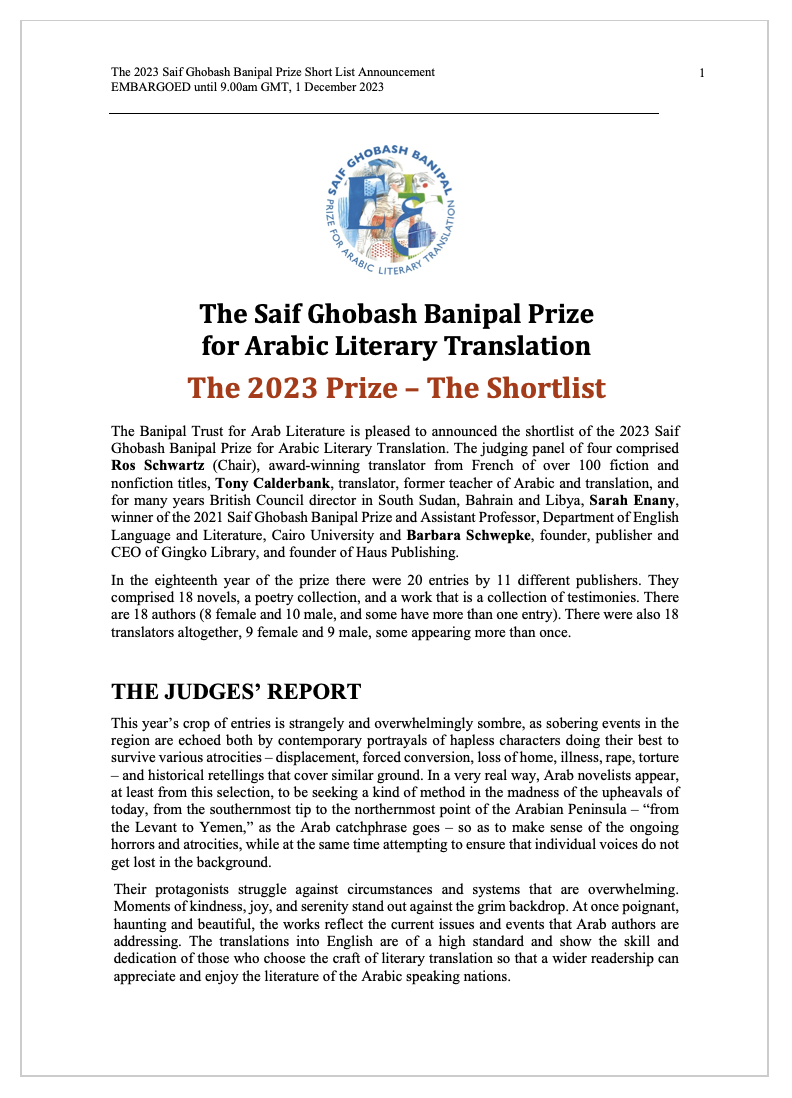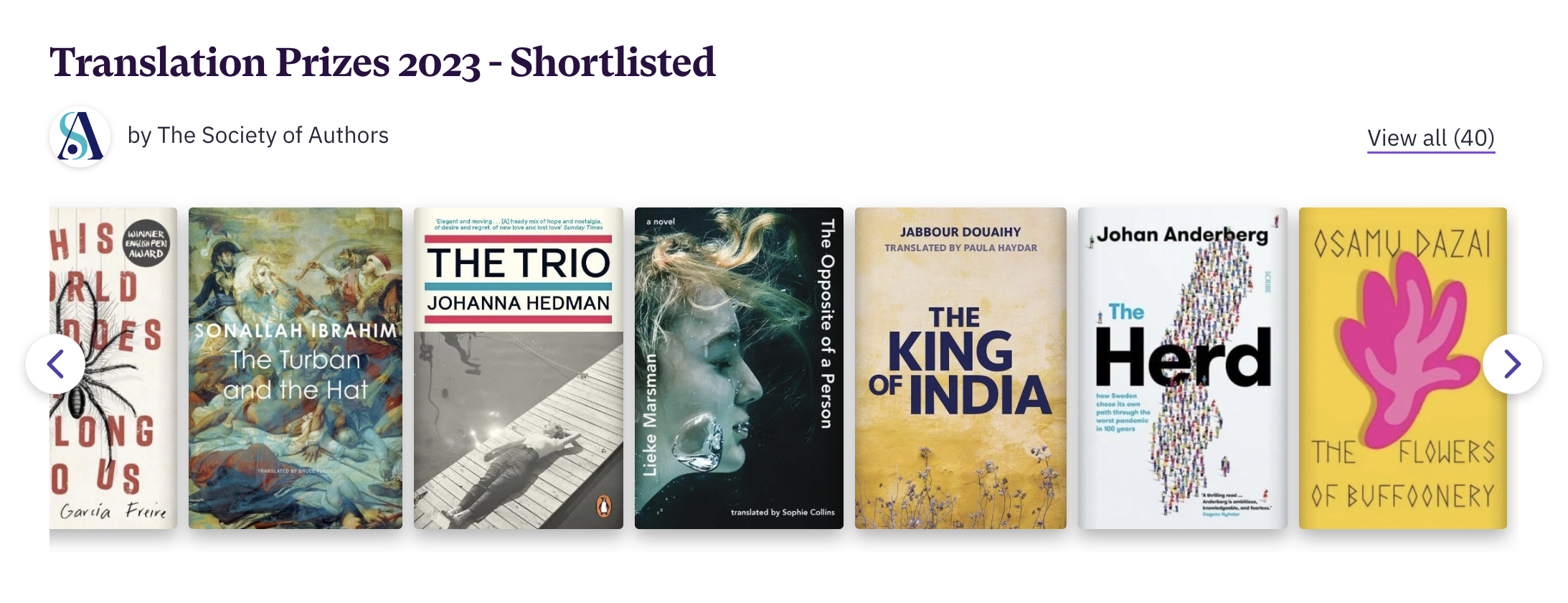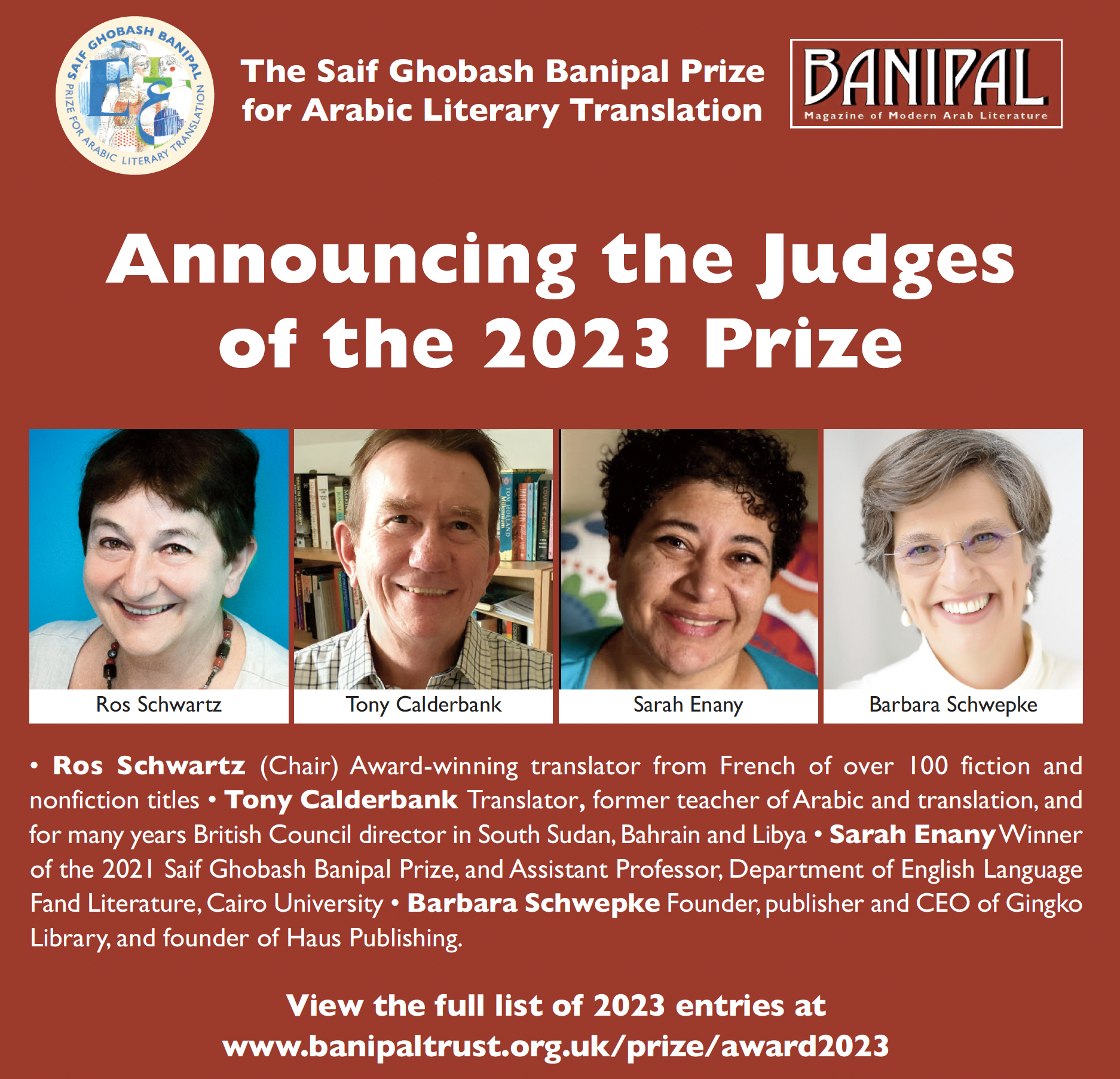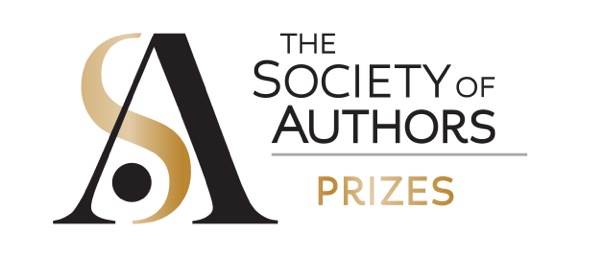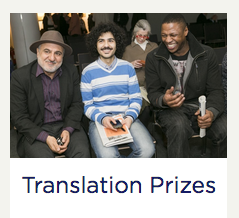The 2023 Saif Ghobash Banipal Prize for Arabic Literary Translation
Winner Shortlist Entries
Announcing LUKE LEAFGREN the winner
for his translation of Mister N
by Najwa Barakat

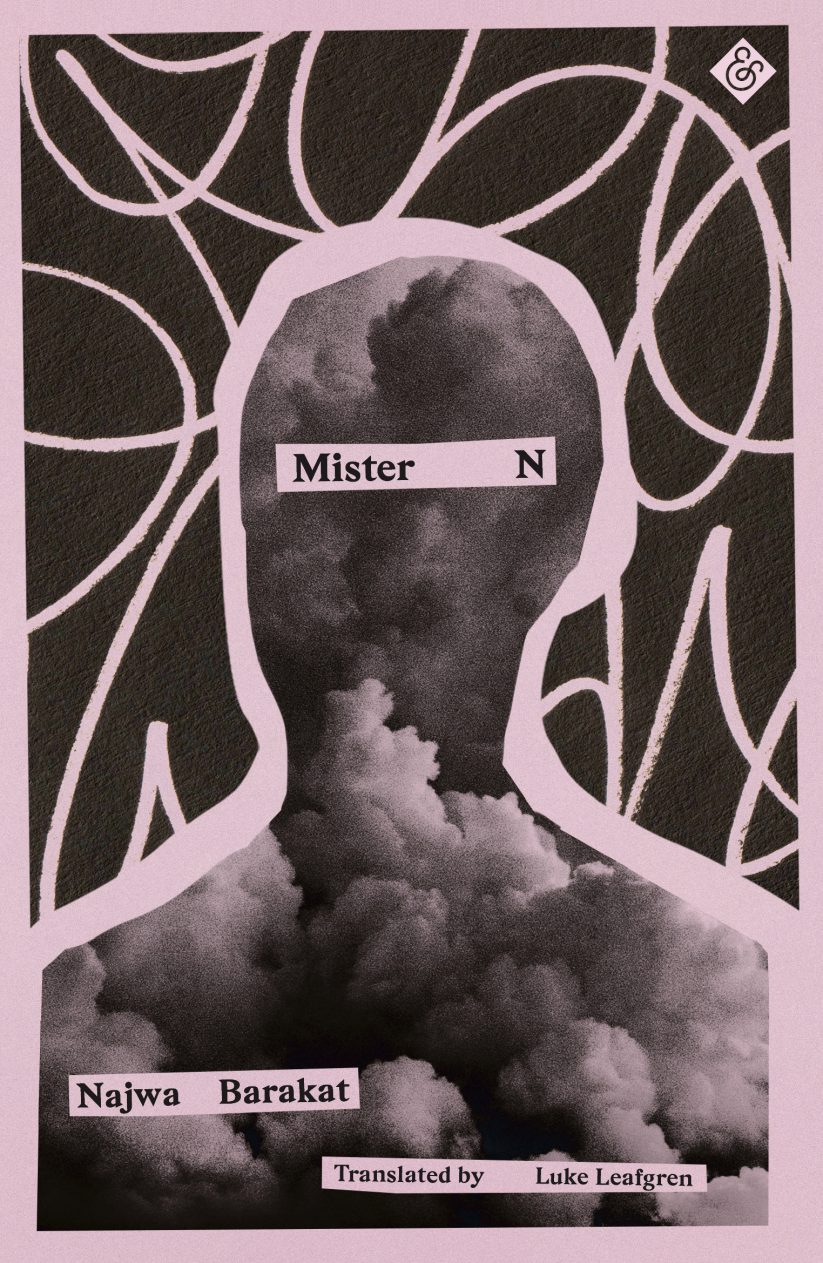
“Capturing the spirit and the letter of the original in all its depth and virtuosity”
The 2023 Saif Ghobash Banipal Prize for Arabic Literary Translation is awarded to Luke Leafgren for his translation of Mister N by Najwa Barakat, published by And Other Stories. Following the shortlist of six works that was announced on 1 December 2023, the judges are unanimous in naming Luke Leafgren as the winner of the 2023 prize, to be awarded by the Society of Authors on 7 February 2024.
The judging panel of four comprised Ros Schwartz (Chair), award-winning translator from French of over 100 fiction and nonfiction titles, Tony Calderbank, translator, former teacher of Arabic and translation, and for many years British Council director in South Sudan, Bahrain and Libya, Sarah Enany, winner of the 2021 Saif Ghobash Banipal Prize and Assistant Professor, Department of English Language and Literature, Cairo University and Barbara Schwepcke, founder, publisher and CEO of Gingko Library, and founder of Haus Publishing. For more information about the judges click here.
THE JUDGES’ REPORT
It was quite a challenge to select a winner from such a range of genres – including fiction, testimony, a children’s book and historical fiction – but the judging process was as delightfully simple as it was unanimous. In our individual selections, almost all the judges had Mister N as a contender and it was highly spoken of by all.
We soon reached a consensus as to the shortlist, and one of us said, “Right, so we all seem to pretty much agree that Mister N is our winner?” There was enthusiastic assent from everyone. This unanimity is even more striking given the sterling quality of the works on our shortlist. All of them are beautifully written originals, with compelling narratives – saddening and sobering in the case of What Have You Left Behind?; uplifting and exciting in Thunderbird; contemplative and profound in The Turban and the Hat; captivating and atmospheric in The King of India; and complex and enthralling in Firefly. The translations of these works more than do them justice; they give the originals new life in a new language.
And yet, this said, Mister N was the standout choice for its magnificent translation. In smooth, self-effacing prose, enriched by a widely varied vocabulary, Luke Leafgren leads the reader seamlessly into Najwa Barakat’s creation of a labyrinthine world where all is not as it seems. The shifts in time and point of view are conveyed with aplomb, and the general effect is of a riveting psychological thriller written in delightfully rich and eloquent English.
Capturing the spirit and the letter of the original in all its depth and virtuosity, Mister N is an exceptionally good example of the translator’s art. It is both faithful and creative, fully representing the original work with all its dark complexity, fragmented narration and splashes of sombre humour. The choices of structure, vocabulary, and idiom that Luke Leafgren has made, perfectly render the Arabic, recreating the obsessive fastidiousness of the protagonist, the ambiguous nature of his accommodation and the serial instability of the city around him.
* * *
REACTION FROM LUKE LEAFGREN
"Winning the Saif Ghobash Banipal Prize for Arabic Literary Translation in 2018 meant more to me than any other achievement in my life, and that special feeling is echoed now. This prize is also for Najwa Barakat, whose creativity is a gift to readers, and whose remarkable novel rewarded all the hours I spent in reading, drafting, revising, and editing since the day she sent me two sections of the manuscript in 2018. I am happy to share this honor with Stefan Tobler and everyone at And Other Stories, and especially with editor Jeremy Davies, whose careful reading and creative suggestions improved my translation immensely. In addition to being a powerful work of literature, this book is a testament to the capacious history of Beirut, and to that great city’s resilience and promise through past and current tragedies."
ABOUT THE TRANSLATOR
 Luke Leafgren is an Assistant Dean of Harvard College. He has published seven translations of contemporary Arabic novels and received the 2018 Saif Ghobash Banipal Prize for Arabic Literary Translation for his translation of Muhsin Al-Ramli’s The President’s Gardens. In May 2023, And Other Stories published his translation of Shalash the Iraqi, by Shalash.
Luke Leafgren is an Assistant Dean of Harvard College. He has published seven translations of contemporary Arabic novels and received the 2018 Saif Ghobash Banipal Prize for Arabic Literary Translation for his translation of Muhsin Al-Ramli’s The President’s Gardens. In May 2023, And Other Stories published his translation of Shalash the Iraqi, by Shalash.
ABOUT THE AUTHOR
 Najwa Barakat was born in Lebanon in 1961. After receiving a degree in theatre at the Fine Arts Institute in Beirut, she moved to Paris and studied cinema at Le Conservatoire Libre du Cinéma Français. She has hosted cultural programs produced by Radio France Internationale (RFI), the BBC, and Al Jazeera, and is the author of seven novels as well as being the Arabic translator of Albert Camus’s notebooks. She lives in Paris.
Najwa Barakat was born in Lebanon in 1961. After receiving a degree in theatre at the Fine Arts Institute in Beirut, she moved to Paris and studied cinema at Le Conservatoire Libre du Cinéma Français. She has hosted cultural programs produced by Radio France Internationale (RFI), the BBC, and Al Jazeera, and is the author of seven novels as well as being the Arabic translator of Albert Camus’s notebooks. She lives in Paris.
ABOUT THE BOOK
 Mister N by Najwa Barakat (Lebanon)
Mister N by Najwa Barakat (Lebanon)
Published by And Other Stories, 17 May 2022
https://www.andotherstories.org/mister-n/
Pbk ISBN: 9781913505325. £11.99
Ebook ISBN: 9781913505332 £9.99
Mister N is a dark tragi-comic novel which relates the tale of a former novelist who has returned to writing in order to exorcise the disturbing memories of his past. As he sits in his room in a mysterious hotel, struggling to disentangle the relationships he has had with the members of his own family and the characters he has created in his novels, his life lurches further into disorder. Time, place, and Mister N’s inner dialogue become ever more fragmented, and just like the damaged city around him, he cannot quite manage to put things back together.
THE AWARD CEREMONY – 7 February 2024
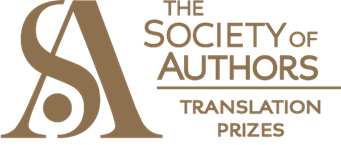 The Translation Prizes Award Ceremony, hosted by the Society of Authors, will take place on 7 February 2024 at the British Library, and will award eight translation prizes:, the Bernard Shaw Prize (Swedish biennial), the Premio Valle Inclán (Spanish), the Saif Ghobash Banipal Prize (Arabic), for the first time the Great Britain Sasakawa Foundation Translation Prize (Japanese), the Schlegel-Tieck Prize (German), Scott Moncrieff Prize (French), the Translators’ Association First Translation Prize (debut translation from any language into English) and The Goethe-Institut Award (biennial).
The Translation Prizes Award Ceremony, hosted by the Society of Authors, will take place on 7 February 2024 at the British Library, and will award eight translation prizes:, the Bernard Shaw Prize (Swedish biennial), the Premio Valle Inclán (Spanish), the Saif Ghobash Banipal Prize (Arabic), for the first time the Great Britain Sasakawa Foundation Translation Prize (Japanese), the Schlegel-Tieck Prize (German), Scott Moncrieff Prize (French), the Translators’ Association First Translation Prize (debut translation from any language into English) and The Goethe-Institut Award (biennial).
A CELEBRATION OF LITERARY TRANSLATION – 8 February 2024
The Annual Lecture and the Winner of the 2023 Prize
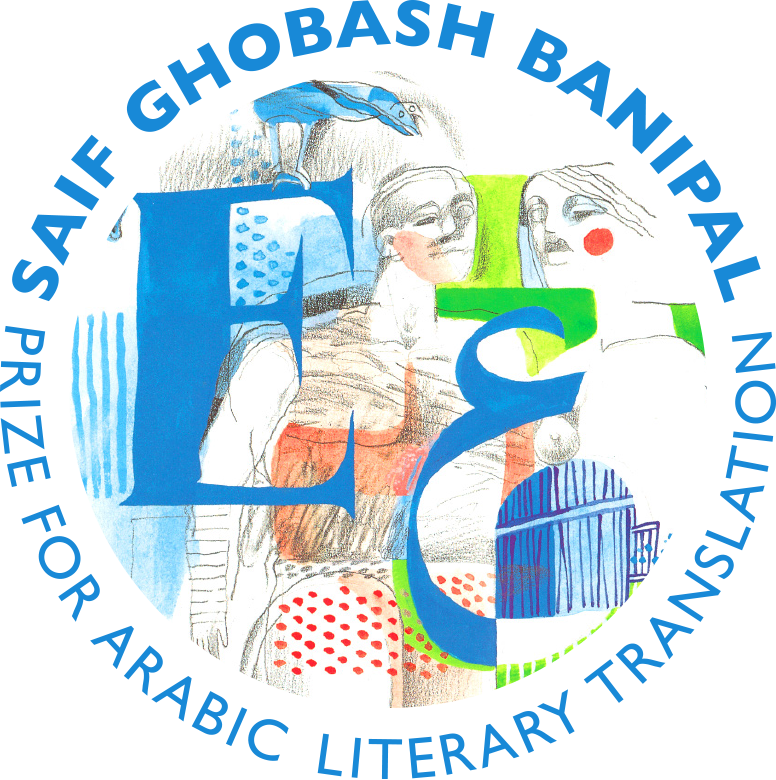 On Thursday 8 February, from 6.00pm GMT, at the SOAS Brunei Gallery, The Banipal Trust for Arab Literature will co-host with the SOAS Centre for Translation Studies and Centre for Cultural, Literary and Postcolonial Studies A Celebration of Literary Translation at which Prizewinner Luke Leafgren will be in conversation with chair of judges Ros Schwartz, andacclaimed poet and poetry translator Khaled Mattawa will give the Annual Prize Lecture.
On Thursday 8 February, from 6.00pm GMT, at the SOAS Brunei Gallery, The Banipal Trust for Arab Literature will co-host with the SOAS Centre for Translation Studies and Centre for Cultural, Literary and Postcolonial Studies A Celebration of Literary Translation at which Prizewinner Luke Leafgren will be in conversation with chair of judges Ros Schwartz, andacclaimed poet and poetry translator Khaled Mattawa will give the Annual Prize Lecture.![]() The event will be in-person and online, followed by a Q&A and reception.
The event will be in-person and online, followed by a Q&A and reception.
ALL WELCOME
to this free event, in-person and online


Alternatively go to this link: https://www.soas.ac.uk/about/event/saif-ghobash-banipal-prize-arabic-literary-translation-2023-annual-lecture-and-2023
_______________________________
The 2023 Prize – The Shortlist
The Banipal Trust for Arab Literature is pleased to announced the shortlist of the 2023 Saif Ghobash Banipal Prize for Arabic Literary Translation. The judging panel of four comprised Ros Schwartz (Chair), award-winning translator from French of over 100 fiction and nonfiction titles, Tony Calderbank, translator, former teacher of Arabic and translation, and for many years British Council director in South Sudan, Bahrain and Libya, Sarah Enany, winner of the 2021 Saif Ghobash Banipal Prize and Assistant Professor, Department of English Language Fand Literature, Cairo University and Barbara Schwepcke, founder, publisher and CEO of Gingko Library, and founder of Haus Publishing.
In the eighteenth year of the prize there were 20 entries by 11 different publishers. They comprised 18 novels, a poetry collection, and a work that is a collection of testimonies. There are 18 authors (8 female and 10 male, and some have more than one entry). There were also 18 translators altogether, 9 female and 9 male, some appearing more than once.
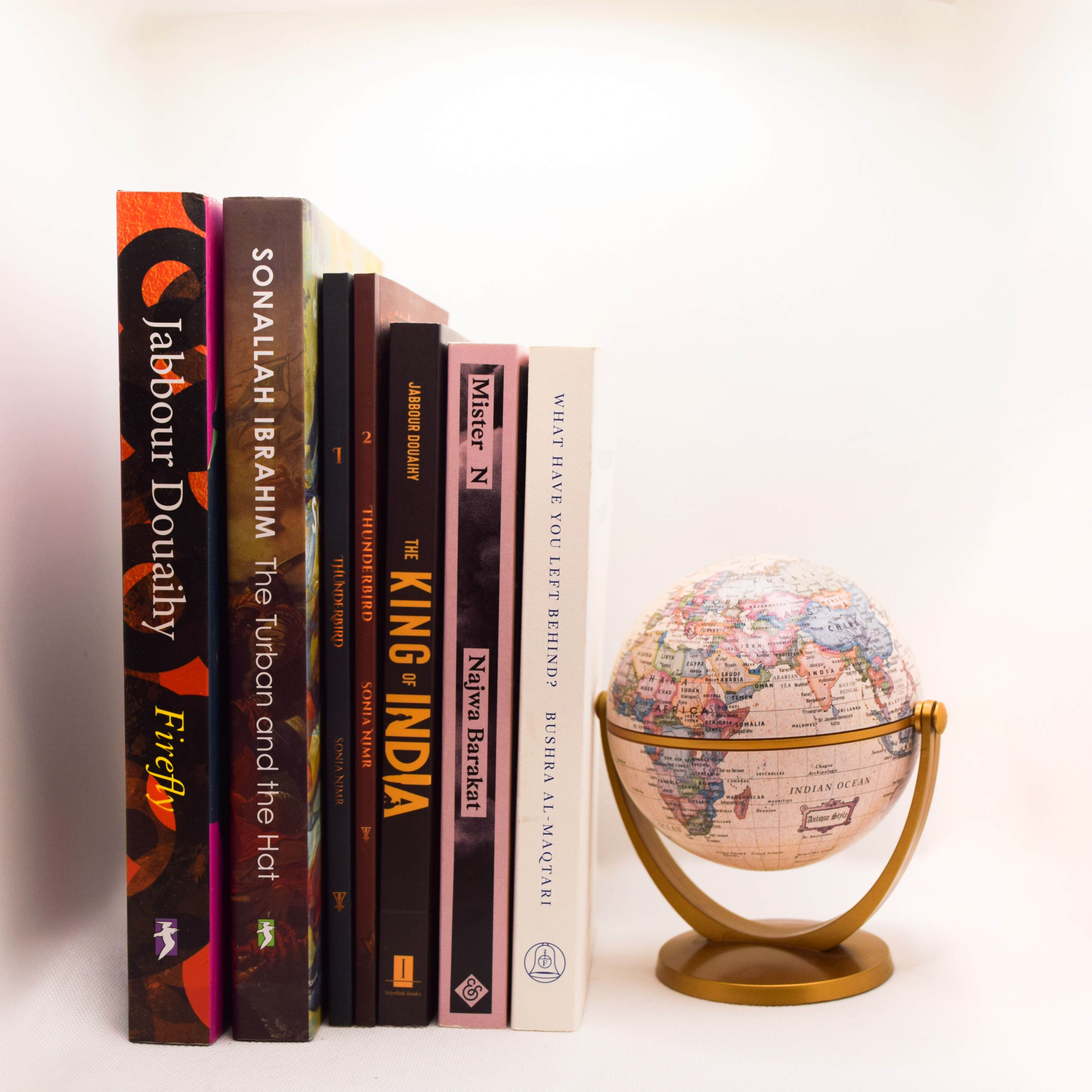
THE JUDGES’ REPORT
This year’s crop of entries is strangely and overwhelmingly sombre, as sobering events in the region are echoed both by contemporary portrayals of hapless characters doing their best to survive various atrocities – displacement, forced conversion, loss of home, illness, rape, torture – and historical retellings that cover similar ground. In a very real way, Arab novelists appear, at least from this selection, to be seeking a kind of method in the madness of the upheavals of today, from the southernmost tip to the northernmost point of the Arabian Peninsula – “from the Levant to Yemen,” as the Arab catchphrase goes – so as to make sense of the ongoing horrors and atrocities, while at the same time attempting to ensure that individual voices do not get lost in the background.
Their protagonists struggle against circumstances and systems that are overwhelming. Moments of kindness, joy, and serenity stand out against the grim backdrop. At once poignant, haunting and beautiful, the works reflect the current issues and events that Arab authors are addressing. The translations into English are of a high standard and show the skill and dedication of those who choose the craft of literary translation so that a wider readership can appreciate and enjoy the literature of the Arabic speaking nations.
THE SHORTLISTED WORKS
The Turban and the Hat by Sonallah Ibrahim, translated by Bruce Fudge
published by Seagull Books, 2022
Firefly by Jabbour Douaihy, translated by Paula Haydar and Nadine Sinno
published by Seagull Books, 2022
The King of India by Jabbour Douaihy, translated by Paula Haydar
published by Interlink Books, 2022
What Have you Left Behind? by Bushra al-Maqtari, translated by Sawad Hussain
Fitzcarraldo Editions, 2022
Mister N by Najwa Barakat, translated by Luke Leafgren
And Other Stories, 2022
Thunderbird, Books One & Two, by Sonia Nimr, translated by M Lynx Qualey
CMES: Emerging Voices from the Middle East Series, University of Texas Press, 2022
*

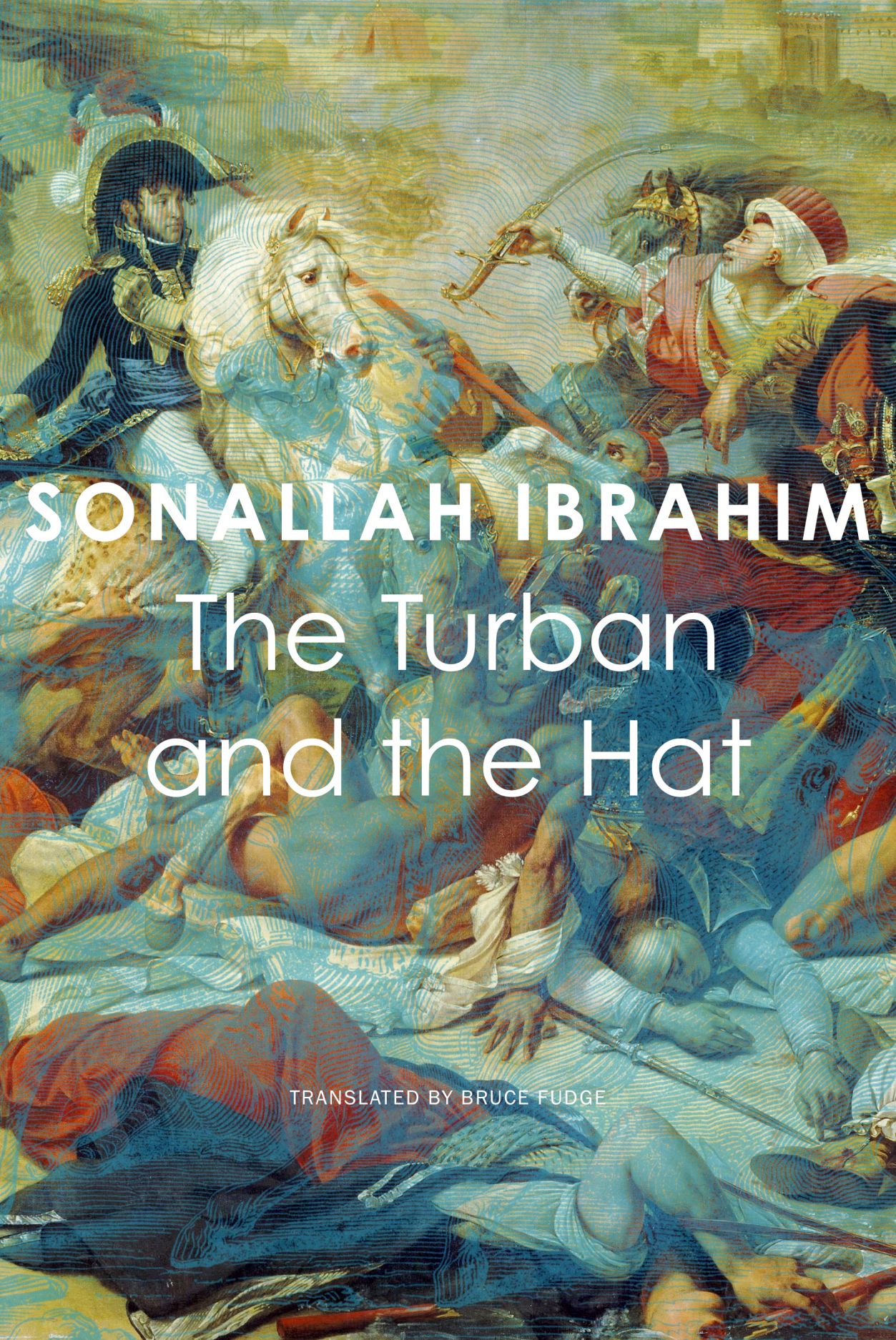 The Turban and the Hat
The Turban and the Hat
by Sonallah Ibrahim
translated by Bruce Fudge
published by Seagull Books, 2022
JUDGE SARAH ENANY WRITES:
The Turban and the Hat performs the party trick, familiar to Arab audiences, of retelling a historical incident (which may or may not be presented from the point of view of a minor character) with a view to projecting onto the present, specifically how the lessons of history remain unlearned. Sonallah Ibrahim’s protagonist is a young man, the scribe of famed real-life eighteenth-century historian al-Jabarti. He speaks some French and thus is recruited as an interpreter for the French campaign in Egypt. Swept up in subsequent events in Egypt and the failed campaign on the Levant, he is forced to separate propaganda from truth, growing politically while personally remaining stuck in his own local brand of religious-patriarchal misogyny even as he conducts an affair with Napoleon’s mistress.
A sour taste remains in the mouth at the end, as war yields, predictably, not glory but disease and death, while the vaunted meeting of cultures fails to produce any genuine enlightenment. The terse diary style, archaic language and abstruse quotations from al-Jabarti’s original historical writings are handled with smoothness and aplomb by translator Bruce Fudge.
COMMENT FROM THE TRANSLATOR
Bruce Fudge
"It is a great honour to have this translation shortlisted for the Saif Ghobash Banipal Prize. The Turban and the Hat stands out among Sonallah Ibrahim’s other works, and it deserves to be more widely read, so I’ll be delighted if this shortlisting means it will reach more readers. In my view, it is an extraordinary literary example of cross-cultural encounter and conflict, a historical novel whose contemporary resonance is always evident but never heavy-handed. Dark as its major themes may be, it conveys also a fundamental humanity and even humour. It is also a wonderful evocation of pre-modern Cairo and the streets and monuments that will be familiar to many even today. I was very happy to be able to bring this novel into English, and to show another, somewhat unexpected, side of Sonallah Ibrahim."
ABOUT THE AUTHOR AND TRANSLATOR
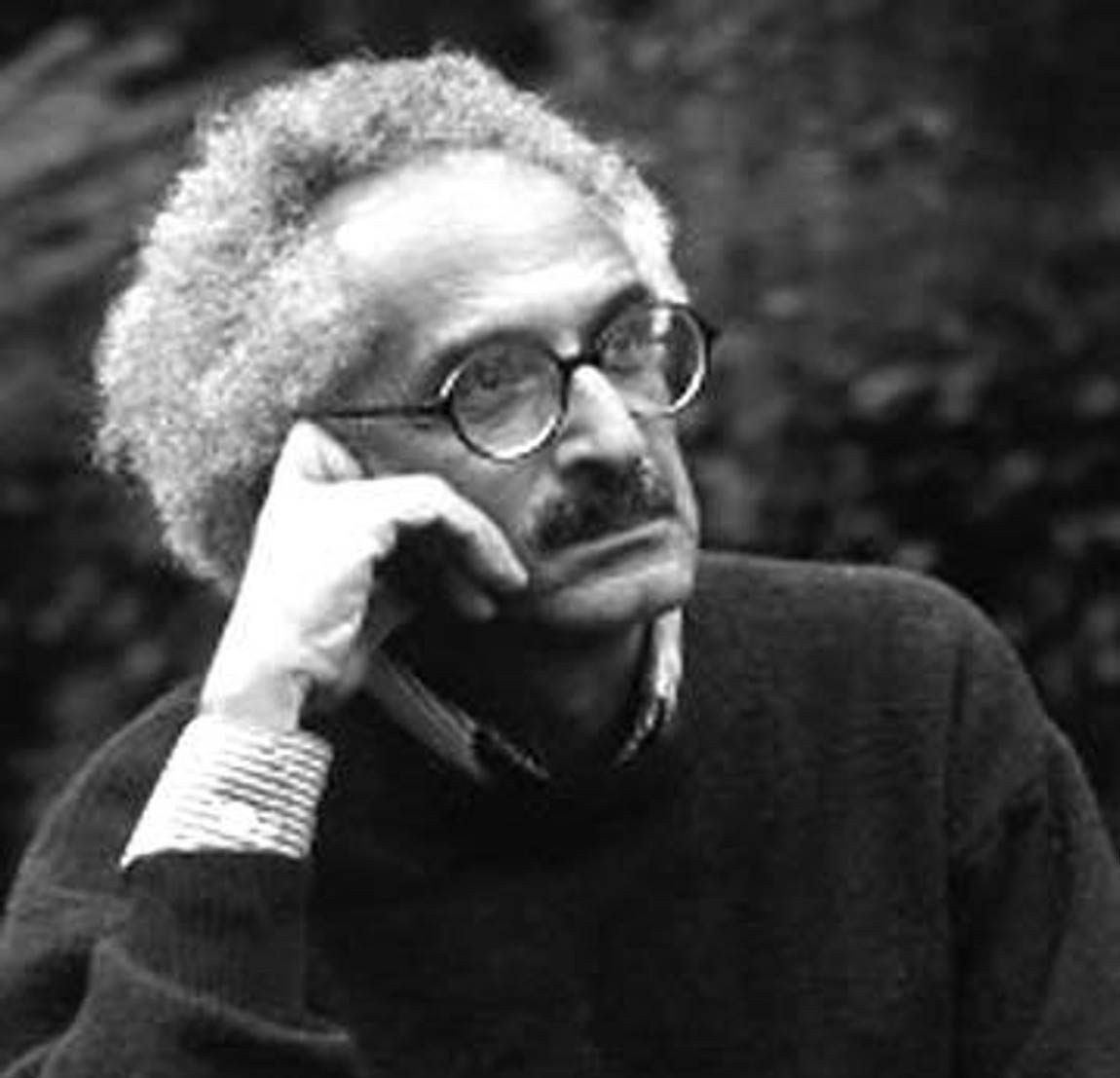 Sonallah Ibrahim is a renowned author from Egypt, well known for documentary novels that employ a literary style unique in Arabic writing. Other works translated into English include The Committee (2001), Zaat (2001), Stealth (2010) and That Smell & Notes from Prison (2013), Beirut, Beirut (2014), Ice (2019), Warda (2021) and 1970 The Last Days (2023).
Sonallah Ibrahim is a renowned author from Egypt, well known for documentary novels that employ a literary style unique in Arabic writing. Other works translated into English include The Committee (2001), Zaat (2001), Stealth (2010) and That Smell & Notes from Prison (2013), Beirut, Beirut (2014), Ice (2019), Warda (2021) and 1970 The Last Days (2023).
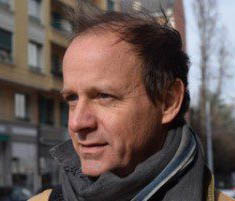 Bruce Fudge is professor of Arabic at the University of Geneva in Switzerland. He is also the translator of A Hundred and One Nights, Library of Arabic Literature, New York University Press, 2016. He is the author of Quranic Hermeneutics: al-Tabrisi and the Craft of Commentary (2011) as well as numerous articles on the interpretation of the Quran and on medieval and modern Arabic literature.
Bruce Fudge is professor of Arabic at the University of Geneva in Switzerland. He is also the translator of A Hundred and One Nights, Library of Arabic Literature, New York University Press, 2016. He is the author of Quranic Hermeneutics: al-Tabrisi and the Craft of Commentary (2011) as well as numerous articles on the interpretation of the Quran and on medieval and modern Arabic literature.
*
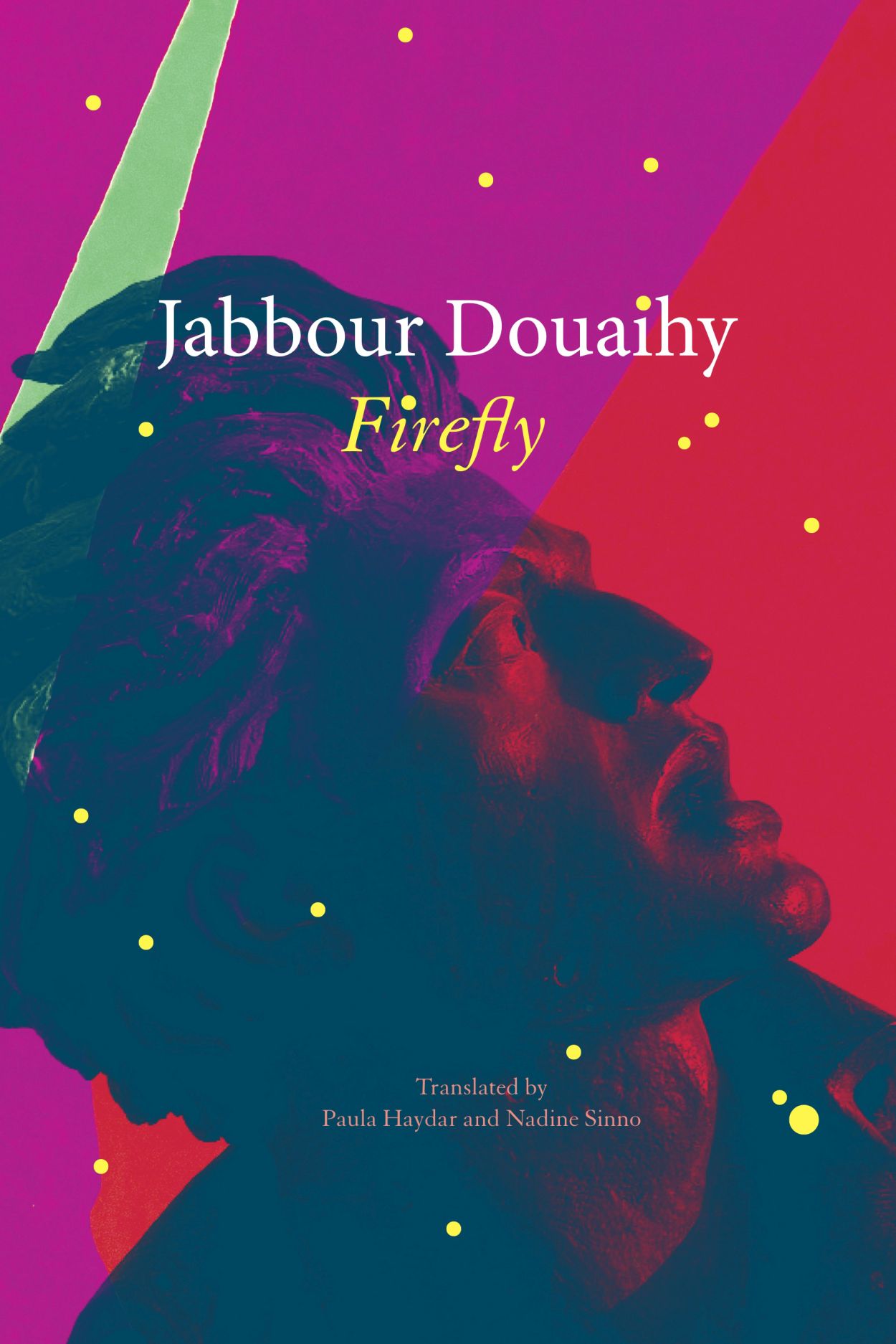 Firefly
Firefly
by Jabbour Douaihy
translated by Paula Haydar and Nadine Sinno
published by Seagull Books, 2022
JUDGE TONY CALDERBANK WRITES:
Firefly relates the story of Nizam, a young man growing up in Lebanon in the years leading up to the civil war. The hero (whose name means system, regime, order) hails from a Muslim family but is raised by a Christian couple who have no children of their own. As a young man in Beirut, he gathers around him a group of friends and acquaintances who represent the cultural, religious, and political complexity of Lebanese society as the country heads into turmoil. Beautifully crafted in Arabic, from its bucolic beginning to the tragic end, it is a compelling and often disturbing read; a decent and sensitive person navigating the horrific banality of sectarian allegiance. Paula Haydar and Nadine Sinno have produced an excellent translation, with natural smooth flowing idiomatic English. It is a sensitive, thoughtful rendering, which perfectly captures the tone and mood of the original.
COMMENT FROM THE TRANSLATORS
Paula Haydar and Nadine Sinno
“We are thrilled to learn that Jabbour Douaihy’s Firefly has been shortlisted for the 2023 Saif Ghobash Banipal Prize. Our experience translating it together was especially meaningful to us. We began working on it just before the start of the pandemic, and when we sent the completed manuscript off to the press in 2020, the world was still deeply entrenched in those surreal days. Having each other and having this novel to work on together served as our lifeline during those difficult times. It was also therapeutic to revisit the civil war period brought to life in Firefly, while simultaneously living through the challenges of quarantine and fear brought on by the pandemic, which are not unlike living through a war. In its depiction of war, sectarianism, and fear of the other, this novel is bound to capture the hearts and minds of readers worldwide. We are honored to be part of this novel’s “other life” in English and to help bring attention to an author whose legacy will inspire readers and writers for many years to come.”
ABOUT THE AUTHOR AND TRANSLATOR
 Jabbour Douaihy (1949-2021), author, mentor, teacher, Professor of French Literature at the University of Lebanon, with a PhD in Comparative Literature from the Sorbonne, was born in Zgharta, northern Lebanon, in 1949. His eight works of fiction include novels, short stories and children’s books and chronicled the story of his beloved homeland of Lebanon. Three of his novels were shortlisted for the International Prize for Arabic Fiction, June Rain (2008), The Vagrant (2012), The King of India (2020), while The American Quarter was longlisted in 2015. The English translation of his final novel, also translated by Paula Haydar, Poison in the Air, is published December 2023 and chronicles the decades of social, political, and economic turmoil leading up to and including the recent collapse of Lebanon after the horrific explosion in 2020 at the Port of Beirut.
Jabbour Douaihy (1949-2021), author, mentor, teacher, Professor of French Literature at the University of Lebanon, with a PhD in Comparative Literature from the Sorbonne, was born in Zgharta, northern Lebanon, in 1949. His eight works of fiction include novels, short stories and children’s books and chronicled the story of his beloved homeland of Lebanon. Three of his novels were shortlisted for the International Prize for Arabic Fiction, June Rain (2008), The Vagrant (2012), The King of India (2020), while The American Quarter was longlisted in 2015. The English translation of his final novel, also translated by Paula Haydar, Poison in the Air, is published December 2023 and chronicles the decades of social, political, and economic turmoil leading up to and including the recent collapse of Lebanon after the horrific explosion in 2020 at the Port of Beirut.
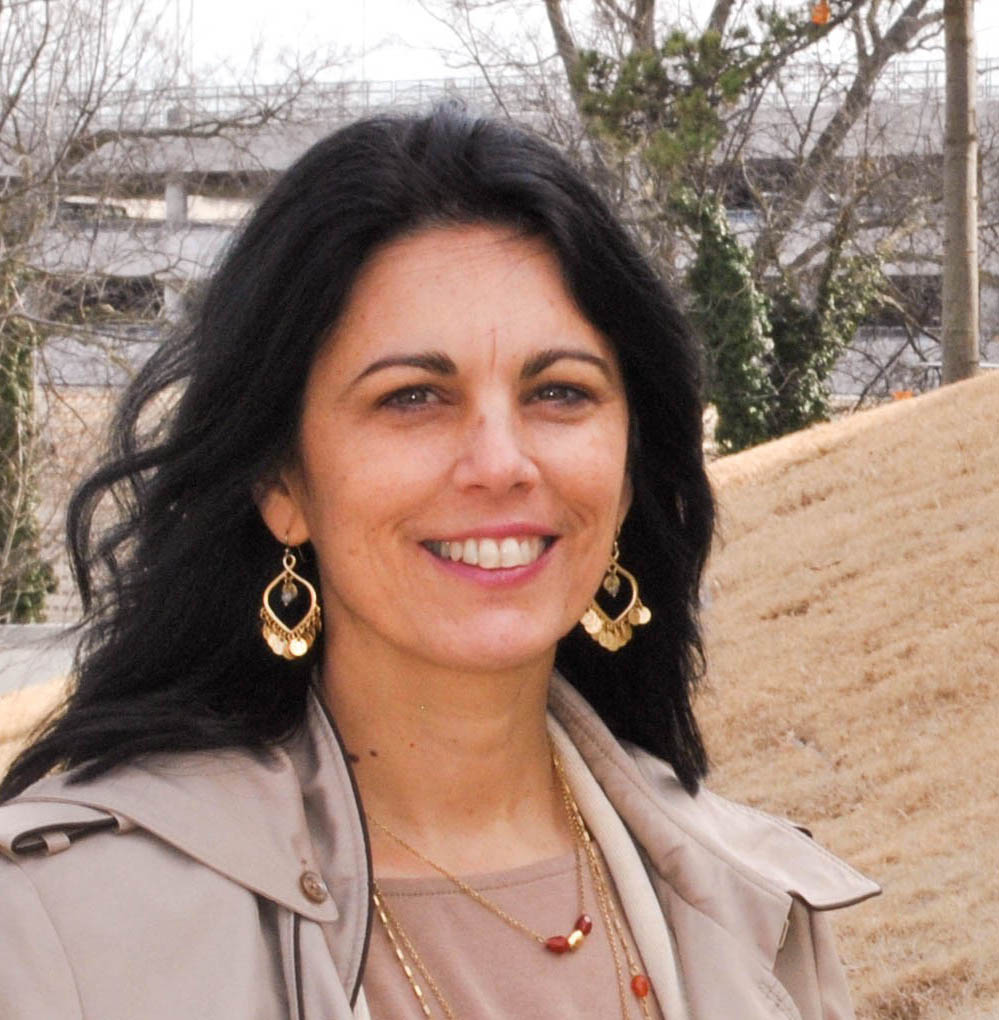 Paula Haydar is an award-winning translator of numerous contemporary Arabic novels, whose authors include Lebanese writers Elias Khoury, Rachid Al-Daif, Jabbour Douaihy, and Basma Elkhatib, Palestinian writers Sahar Khalifeh and Adania Shibli, and Jordanian writer Jamal Naji. The Arabic original of her translation of Jabbour Douaihy’s King of India (Interlink), was shortlisted for the 2020 International Prize for Arabic Fiction. Her translation of Douaihy’s June Rain was highly commended for the 2014 Saif Ghobash Banipal Prize. She is Assistant Professor of Arabic in the Department of World Languages, Literatures, and Cultures at the University of Arkansas, USA.
Paula Haydar is an award-winning translator of numerous contemporary Arabic novels, whose authors include Lebanese writers Elias Khoury, Rachid Al-Daif, Jabbour Douaihy, and Basma Elkhatib, Palestinian writers Sahar Khalifeh and Adania Shibli, and Jordanian writer Jamal Naji. The Arabic original of her translation of Jabbour Douaihy’s King of India (Interlink), was shortlisted for the 2020 International Prize for Arabic Fiction. Her translation of Douaihy’s June Rain was highly commended for the 2014 Saif Ghobash Banipal Prize. She is Assistant Professor of Arabic in the Department of World Languages, Literatures, and Cultures at the University of Arkansas, USA.
 Nadine A. Sinno is an associate professor of Arabic and director of the Arabic program in the Department of Modern and Classical Languages and Literatures at Virginia Tech College of Liberal Arts and Human Sciences, USA. Her translations include Nazik Saba Yared’s novel Canceled Memories (2009) and a co-translation of Rashid al-Daif’s Who’s Afraid of Meryl Streep? (2014).
Nadine A. Sinno is an associate professor of Arabic and director of the Arabic program in the Department of Modern and Classical Languages and Literatures at Virginia Tech College of Liberal Arts and Human Sciences, USA. Her translations include Nazik Saba Yared’s novel Canceled Memories (2009) and a co-translation of Rashid al-Daif’s Who’s Afraid of Meryl Streep? (2014).
*
 The King of India
The King of India
by Jabbour Douaihy
translated by Paula Haydar
published by Interlink Books, 2022
JUDGE ROS SCHWARTZ WRITES:
Crime fiction is a genre not usually associated with writers from the Middle East, and this murder mystery set against a backdrop of sectarian and family feuds is an original and compelling novel. Much more than a whodunnit, The King of India takes the reader on an odyssey covering three continents and over a century of history. The title is a red herring, since the action takes place in Lebanon, where a newly returned prodigal son, Zakarya Mubarak, is found murdered. Did his cousins kill him to rob him of a valuable painting, or is the answer more complicated? Kamal Abu Khalid, the investigator is more interested in solving the riddle of the murdered man’s life than the mystery of his death. Though very much about Lebanon, its social and sectarian divides and the ineptitude of its institutions, the narrative also unfolds in France where Zakarya spends several years, and the USA, where, at the turn of the 20th century, Zakarya’s intrepid grandmother Filomena had sailed on her own. Through Abu Khalid’s investigation, Jabbour Douaihy explores the meaning of land ownership: sectarianism sometimes runs so deep, that it makes it impossible for anyone to enjoy the land, or even for the land to thrive. Paula Haydar’s perfectly judged translation carries the reader effortlessly through this absorbing and multi-layered novel.
COMMENT FROM THE PUBLISHER
Michel Moushabeck, founder/publisher/editor, Interlink Publishing
“It is a great pleasure to receive the news that Paula Haydar’s English translation of The King of India was shortlisted for Saif Ghobash Banipal Prize for Arabic Literary Translation. Jabbour Douaihy is a Lebanese literary giant. His departure in 2021 has left his beloved Lebanon and his readers throughout the world with a great sense of loss. Through his novels we discovered the realities, tragedies, and enigmatic nature of Lebanese society—especially his northern Lebanese town of Zgharta, to which he had a profound attachment. His thrilling novel, The King of India, shortlisted for the International Prize for Arabic Fiction, is a favorite of mine. All five Douaihy novels published by Interlink were brilliantly translated into English by Prof. Paula Haydar. Like Jabbour Douaihy, Paula is a true lover of Arabic literature; a true lover of Lebanon. This is a well-deserved recognition.”
COMMENT FROM THE TRANSLATOR
Paula Haydar
“I was absorbed in translating the last few pages of Jabbour Douaihy’s The King of India (Interlink, 2022) in the summer of 2021 when an email popped up on my screen with the sad news of the author’s passing. It literally stopped me mid-sentence. Oddly enough, I happened to be filled with a different sort of grief just the other day when an email popped up on my screen from the Banipal Trust administrators. I was in the midst of sending the edited page proofs for Poison in the Air (Interlink, 2023), Douaihy’s final novel, back to the press. I cannot imagine a better recipe for turning my sadness into joy. I am thrilled for this most deserving novelist to be selected for the Saif Ghobash Banipal Prize shortlist. Jabbour Douaihy was an incisive reader of Lebanon who wrote with stark honesty about his country’s people and its storied past. The King of India absorbs our attention as a murder mystery, but in addition to turning the pages in search of clues, we find ourselves uncovering the intricacies of Lebanese society and history that Douaihy illuminates with biting irony. The King of India manages to escape from its own genre, rising to a graceful elegy for lost souls – a crime victim and the homeland that he can never forget.”
ABOUT THE AUTHOR AND TRANSLATOR
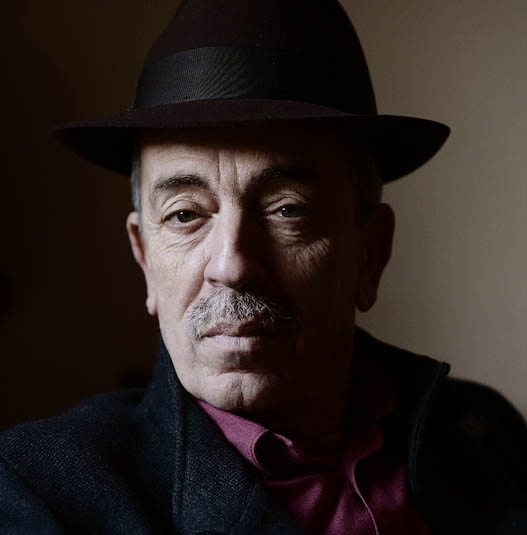 Jabbour Douaihy (1949-2021), author, mentor, teacher, Professor of French Literature at the University of Lebanon, with a PhD in Comparative Literature from the Sorbonne, was born in Zgharta, northern Lebanon, in 1949. His eight works of fiction include novels, short stories and children’s books and chronicled the story of his beloved homeland of Lebanon. Three of his novels were shortlisted for the International Prize for Arabic Fiction, June Rain (2008), The Vagrant (2012), The King of India (2020), while The American Quarter was longlisted in 2015. The English translation of his final novel, also translated by Paula Haydar, Poison in the Air, is published December 2023 and chronicles the decades of social, political, and economic turmoil leading up to and including the recent collapse of Lebanon after the horrific explosion in 2020 at the Port of Beirut.
Jabbour Douaihy (1949-2021), author, mentor, teacher, Professor of French Literature at the University of Lebanon, with a PhD in Comparative Literature from the Sorbonne, was born in Zgharta, northern Lebanon, in 1949. His eight works of fiction include novels, short stories and children’s books and chronicled the story of his beloved homeland of Lebanon. Three of his novels were shortlisted for the International Prize for Arabic Fiction, June Rain (2008), The Vagrant (2012), The King of India (2020), while The American Quarter was longlisted in 2015. The English translation of his final novel, also translated by Paula Haydar, Poison in the Air, is published December 2023 and chronicles the decades of social, political, and economic turmoil leading up to and including the recent collapse of Lebanon after the horrific explosion in 2020 at the Port of Beirut.
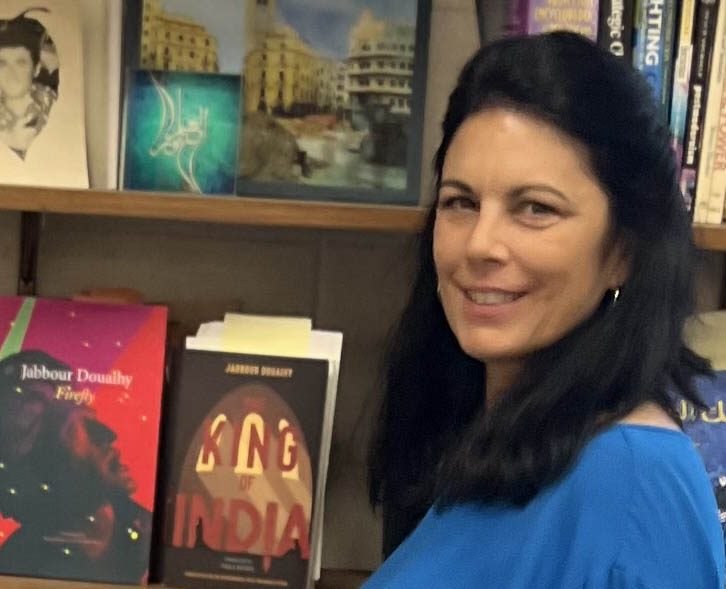 Paula Haydar is an award-winning translator of numerous contemporary Arabic novels, whose authors include Lebanese writers Elias Khoury, Rachid Al-Daif, Jabbour Douaihy, and Basma Elkhatib, Palestinian writers Sahar Khalifeh and Adania Shibli, and Jordanian writer Jamal Naji. The Arabic original of her translation of Jabbour Douaihy’s King of India (Interlink), was shortlisted for the 2020 International Prize for Arabic Fiction. Her translation of Douaihy’s June Rain was highly commended for the 2014 Saif Ghobash Banipal Prize. She is Assistant Professor of Arabic in the Department of World Languages, Literatures, and Cultures at the University of Arkansas, USA.
Paula Haydar is an award-winning translator of numerous contemporary Arabic novels, whose authors include Lebanese writers Elias Khoury, Rachid Al-Daif, Jabbour Douaihy, and Basma Elkhatib, Palestinian writers Sahar Khalifeh and Adania Shibli, and Jordanian writer Jamal Naji. The Arabic original of her translation of Jabbour Douaihy’s King of India (Interlink), was shortlisted for the 2020 International Prize for Arabic Fiction. Her translation of Douaihy’s June Rain was highly commended for the 2014 Saif Ghobash Banipal Prize. She is Assistant Professor of Arabic in the Department of World Languages, Literatures, and Cultures at the University of Arkansas, USA.
*
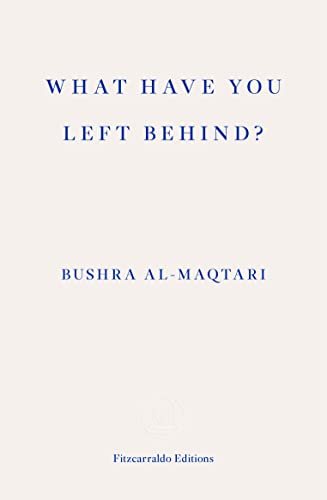 What Have you Left Behind?
What Have you Left Behind?
by Bushra al-Maqtari
translated by Sawad Hussain
Fitzcarraldo Editions, 2022
JUDGE SARAH ENANY WRITES:
Bushra al-Maqtari presents a searing chronicle of today in a collection of personal testimonies of the victims of the civil war in Yemen, which she has been working on collecting since 2015. Not an easy read by any means – tales of people who lost their homes and loved ones, in addition to family members, to murders, drownings, and all manner of atrocities – this book is nevertheless an achievement of giving a voice to the voiceless, to people who would otherwise disappear “unknelled, uncoffined, and unknown”. It is hard to underestimate the importance of this harrowing document, composed entirely of brief tales of woe, and translated by Sawad Hussain with uncompromising, unflinching sincerity and faithfulness to the original. Both author and translator of the eloquently titled What Have You Left Behind? rage in a very real way against the dying of the light.
ABOUT THE AUTHOR AND TRANSLATOR
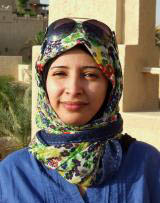 Bushra al-Maqtari (b. 1979) is a writer and journalist living in Sanaa, Yemen. Her writings have appeared in Arabic and international newspapers and magazines, including the New York Times. In 2013, she received the Françoise Giroud Award for Defence of Freedom and Liberties in Paris as well as the Leaders for Democracy Prize awarded by the Project on Middle East Democracy in Washington. In 2020, she was awarded the Johann-Philipp-Palm-Award for Freedom of Speech and Press, following the publication of the German edition of What Have You Left Behind? (Ullstein Verlag, 2020).
Bushra al-Maqtari (b. 1979) is a writer and journalist living in Sanaa, Yemen. Her writings have appeared in Arabic and international newspapers and magazines, including the New York Times. In 2013, she received the Françoise Giroud Award for Defence of Freedom and Liberties in Paris as well as the Leaders for Democracy Prize awarded by the Project on Middle East Democracy in Washington. In 2020, she was awarded the Johann-Philipp-Palm-Award for Freedom of Speech and Press, following the publication of the German edition of What Have You Left Behind? (Ullstein Verlag, 2020).
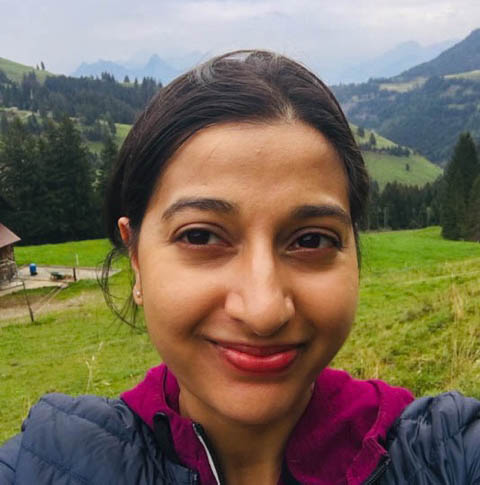 Sawad Hussain is a British Arabic-English translator and litterateur. Her other translations include Passage to the Plaza by Sahar Khalifeh, Shahla Ujayli’s short stories A Bed for the King’s Daughter (which was shortlisted for the 2021 Saif Ghobash Banipal Prize, Edo’s Souls by Stella Gaitano and the co-translation of Black Foam by Haji Jaber. She co-edited the Arabic-English section of the Oxford Arabic Dictionary (2014) and has lectured at the University of Exeter, and taught Arabic in Johannesburg and Dubai. She was the 2022 translator in residence at the British Centre for Literary Translation.
Sawad Hussain is a British Arabic-English translator and litterateur. Her other translations include Passage to the Plaza by Sahar Khalifeh, Shahla Ujayli’s short stories A Bed for the King’s Daughter (which was shortlisted for the 2021 Saif Ghobash Banipal Prize, Edo’s Souls by Stella Gaitano and the co-translation of Black Foam by Haji Jaber. She co-edited the Arabic-English section of the Oxford Arabic Dictionary (2014) and has lectured at the University of Exeter, and taught Arabic in Johannesburg and Dubai. She was the 2022 translator in residence at the British Centre for Literary Translation.
*
 Mister N
Mister N
by Najwa Barakat
translated by Luke Leafgren
And Other Stories, 2022
JUDGE TONY CALDERBANK WRITES:
Mister N is a dark tragi-comic novel which relates the tale of a former novelist who has returned to writing in order to exorcise the disturbing memories of his past. As he sits in his room in a mysterious hotel, struggling to disentangle the relationships he has had with the members of his own family and the characters he has created in his novels, his life lurches further into disorder. Time, place, and Mister N’s inner dialogue become ever more fragmented, and just like the damaged city around him, he cannot quite manage to put things back together. Luke Leafgren has produced a superb translation, beautifully executed with thought and attention to every minute detail, combined with an artful creativity which reproduces the complex, harrowing nuance of the original. This is an excellent example of the translator’s craft.
COMMENT FROM THE PUBLISHER
Stefan Tobler, Publisher, And Other Stories
“Najwa Barakat is a textbook example of a writer thus far side-lined in English translation because of her gender and her poetics both. She doesn’t fit the Anglo-American conception of contemporary Arabic literature, which is meant to be straightforward, if not po-faced, and always engagé. While Barakat’s work is certainly and proudly political, it can also be as brutally violent, broadly comic, and wildly experimental. There's no finer introduction to it than her most recent novel Mister N and we're over the moon that in being shortlisted for the Saif Ghobash Banipal Prize for Arabic Literary Translation, both the novel and Luke's fine translation are being recognized. So well deserved!”
COMMENT FROM THE TRANSLATOR
Luke Leafgren
“Being selected as a semi-finalist for the Saif Ghobash Banipal prize brings a warm thrill of happiness. I feel fortunate and grateful to Najwa Barakat for the opportunity to translate her remarkable novel. It is a work that repays rereading with new observations and deeper understanding, which made successive drafts of the translation a journey of discovery that inspired me with the challenge of writing an English version that could approach the depth of the original. I am also grateful to And Other Stories for taking on this project, and for the chance to work with editor Jeremy Davies, whose careful reading and creative suggestions improved my translation immensely. Among the other things it has given, this book has brought the city of Beirut, with its history, diversity, and tragedy, closer to my heart.”
ABOUT THE AUTHOR AND TRANSLATOR
 Najwa Barakat was born in Lebanon in 1961. After receiving a degree in theatre at the Fine Arts Institute in Beirut, she moved to Paris and studied cinema at Le Conservatoire Libre du Cinema Français. She has hosted cultural programs produced by Radio France Internationale (RFI), the BBC, and Al Jazeera, and is the author of seven novels as well as the Arabic translator of Albert Camus’s notebooks. She lives in Paris.
Najwa Barakat was born in Lebanon in 1961. After receiving a degree in theatre at the Fine Arts Institute in Beirut, she moved to Paris and studied cinema at Le Conservatoire Libre du Cinema Français. She has hosted cultural programs produced by Radio France Internationale (RFI), the BBC, and Al Jazeera, and is the author of seven novels as well as the Arabic translator of Albert Camus’s notebooks. She lives in Paris.
 Luke Leafgren is an Assistant Dean of Harvard College. He has published seven translations of contemporary Arabic novels and received the 2018 Saif Ghobash Banipal Prize for Arabic Literary Translation for his translation of Muhsin Al-Ramli’s The President’s Gardens.
Luke Leafgren is an Assistant Dean of Harvard College. He has published seven translations of contemporary Arabic novels and received the 2018 Saif Ghobash Banipal Prize for Arabic Literary Translation for his translation of Muhsin Al-Ramli’s The President’s Gardens.
*

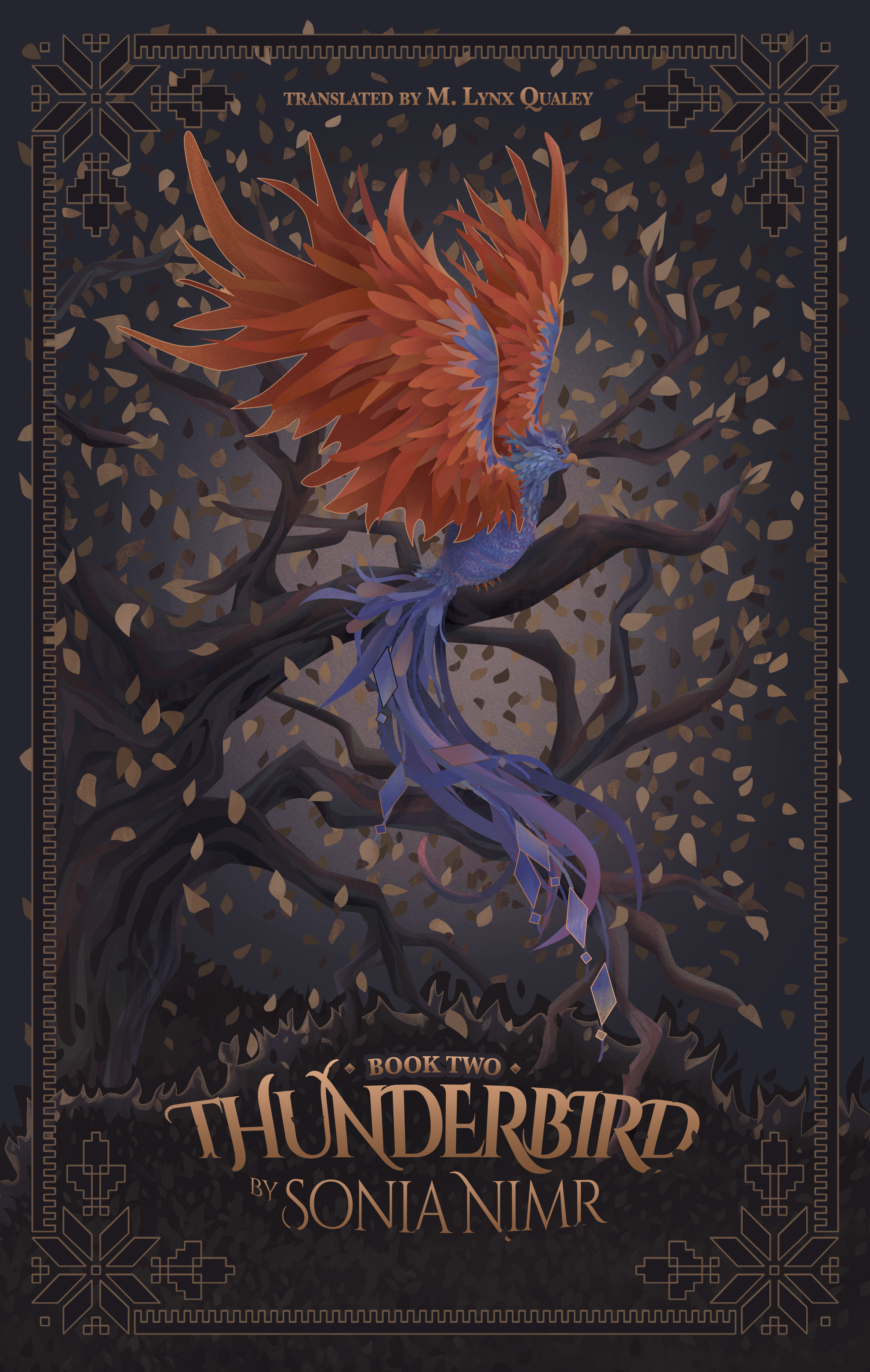 Thunderbird, Books One & Two
Thunderbird, Books One & Two
by Sonia Nimr
translated by M Lynx Qualey
CMES Series: Emerging Voices from the Middle East,
University of Texas Press, 2022
JUDGE BARBARA SCHWEPCKE WRITES:
It is difficult to judge Thunderbird on its translation alone, while the lands the story is set in are engulfed by flames of war and the legendary phoenix rising from the ashes seems to be precisely that: an ancient legend. How can one read about an orphaned, grieving girl called Noor, who protests her innocence when fires keep breaking out around her and not think of the bloodied faces of traumatised children appearing on our screens? And how can one ignore the fact that a Palestinian author, well-known for her political activism, is telling more than just a story, when her protagonist braves an Israeli checkpoint to reach a museum in Jerusalem?
But it is precisely here where Sonia Nimr’s compellingly written time-travelling fantasy begins: Noor is transported back 500 years and lands in the middle of fighting between the Mamluks and the Ottomans. But where was “here”? Noor wonders at the beginning of Book Two. And when is “here”? For the 11-to 13-year-old readers that the Thunderbird books are aimed at it probably doesn’t matter that in Book Two it is Crusaders who are fighting the inhabitants of this historic land. They probably don’t care who is fighting whom and for what reason; all they see is grown-ups fighting and killing each other, flames of war engulfing a hill, a tree and on top of it the legendary phoenix. Is this the message that the author wants to get across? That the past mirrors the present? Young readers will be captivated by a richly atmospheric tale, beautifully translated by Marcia Lynx Qualey.
COMMENT FROM THE PUBLISHER
Dena Afrasiabi, University of Texas Press
“I’m so grateful to see Thunderbird I & II on the shortlist for the Banipal Award. Thank you to the judges for helping carve a space for young people’s literature in the world of Arabic literary translation. I love these books for many reasons, but most of all for their hopefulness. Sonia Nimr’s novels speak to the possibilities of community and stories coming together to help heal the wounds of history. I hope these books get into the hands of even more people, young and otherwise, as a result of appearing on this shortlist.”
COMMENT FROM THE TRANSLATOR
M Lynx Qualey
“I have been an avid follower of this prize since the very beginning, when it went to the late and dear Humphrey Davies, and I certainly never expected to find my work on one of its shortlists. But there is a magic to Sonia’s prose that can do just about anything: make us believe we can talk to cats and travel through time, that legendary creatures are real, and that we can see, smell, and taste the realms of other beings. I can't wait for people to read Book 3, which is an even wilder journey!”
ABOUT THE AUTHOR AND TRANSLATOR
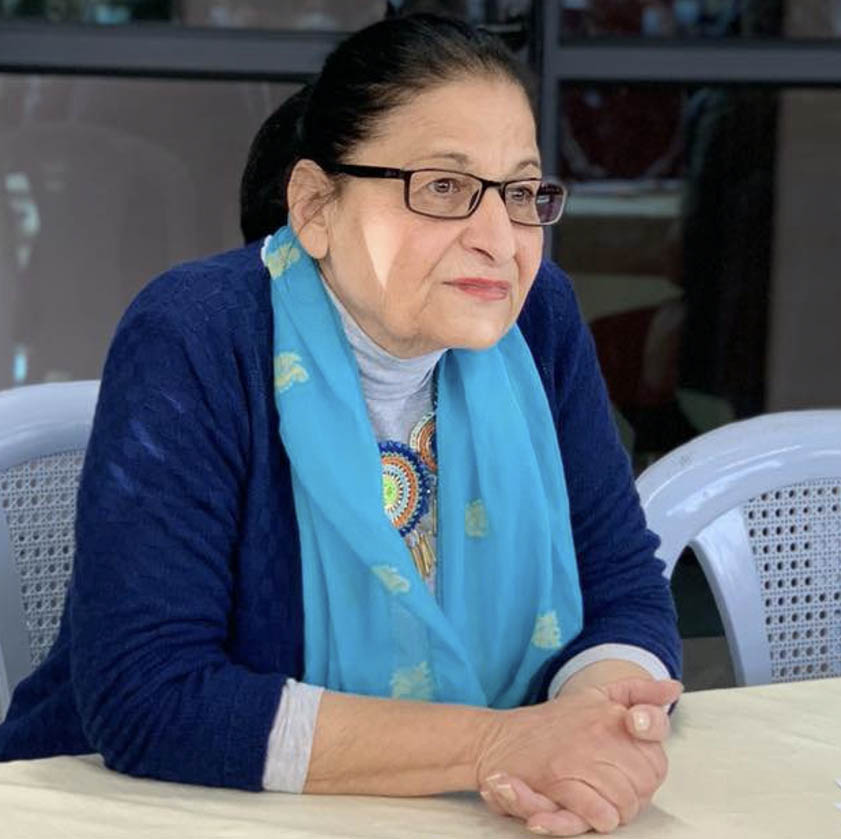 Sonia Nimr is a Palestinian author and storyteller who weaves together contemporary stories with folklore for readers of all ages. She won the prestigious 2014 Etisalat Award, and was also shortlisted for the prize for Thunderbird, the first title in a fantasy trilogy. She is the author of two books in English: Ghaddar the Ghoul and Other Palestinian Stories and A Little Piece of Ground (co-written with Elizabeth Laird) and is an Associate Professor of Philosophy and Cultural Studies at Birzeit University, Palestine.
Sonia Nimr is a Palestinian author and storyteller who weaves together contemporary stories with folklore for readers of all ages. She won the prestigious 2014 Etisalat Award, and was also shortlisted for the prize for Thunderbird, the first title in a fantasy trilogy. She is the author of two books in English: Ghaddar the Ghoul and Other Palestinian Stories and A Little Piece of Ground (co-written with Elizabeth Laird) and is an Associate Professor of Philosophy and Cultural Studies at Birzeit University, Palestine.
 M Lynx Qualey is an editor, translator, and critic who founded the ArabLit website (www.arablit.org), which won a 2017 London Book Fair prize. She is the publisher of ArabLit Quarterly magazine and co-host of the BULAQ podcast. She has co-translated Ghady & Rawan (Univ. Texas Press, 2019).
M Lynx Qualey is an editor, translator, and critic who founded the ArabLit website (www.arablit.org), which won a 2017 London Book Fair prize. She is the publisher of ArabLit Quarterly magazine and co-host of the BULAQ podcast. She has co-translated Ghady & Rawan (Univ. Texas Press, 2019).
*
For the judges' profiles, click on this link: https://www.banipaltrust.org.uk/prize/judges2023
For general information about the prize,click on this link: https://www.banipaltrust.org.uk/prize/
For information about the Shortlists of all the 2023 Translation Prizes, click on this link: https://www2.societyofauthors.org/prizes/translation-prizes/https://www2.societyofauthors.org/2023/12/01/announcing-the-translation-prizes-2023-shortlists/
For information about the Society of Authors and the Translation Prizes administered, click on this link: https://www2.societyofauthors.org/prizes/translation-prizes/
For all information about the Prize's Annual Lecture, click on this link: https://www.banipaltrust.org.uk/lecture/
For all information about the Rules of the prize, click on this link: https://www.banipaltrust.org.uk/rules/
For all information about the Prize's Sponsor, click on this link: https://www.banipaltrust.org.uk/the_sponsor/
The Winner of the Prize will be announced on 8 January 2024.
* * *
The entries
In the eighteenth year of the prize there are now 20 entries, with one call-in by the judges just added, by 11 different publishers. They comprise 18 novels, one poetry collection, and one work that is a collection of testimonies. There are 18 authors (8 female and 10 male, and some have more than one entry). The entries are listed by title in alphabetical order of translator, with first translator listed when there are more than one. There are 18 translators altogether, 9 female and 9 male translators, some appearing more than once.
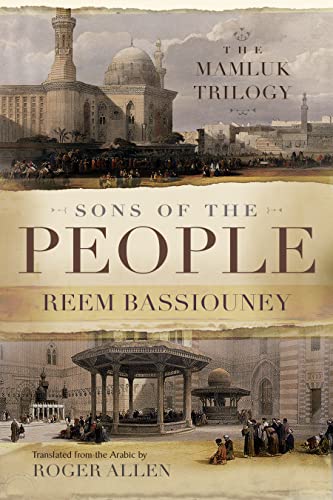
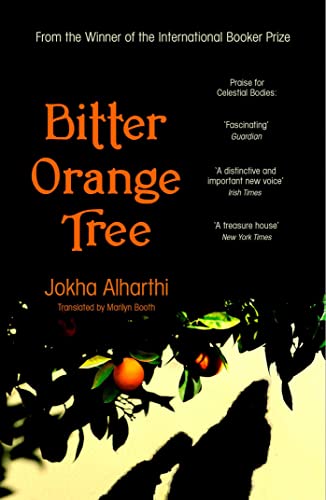
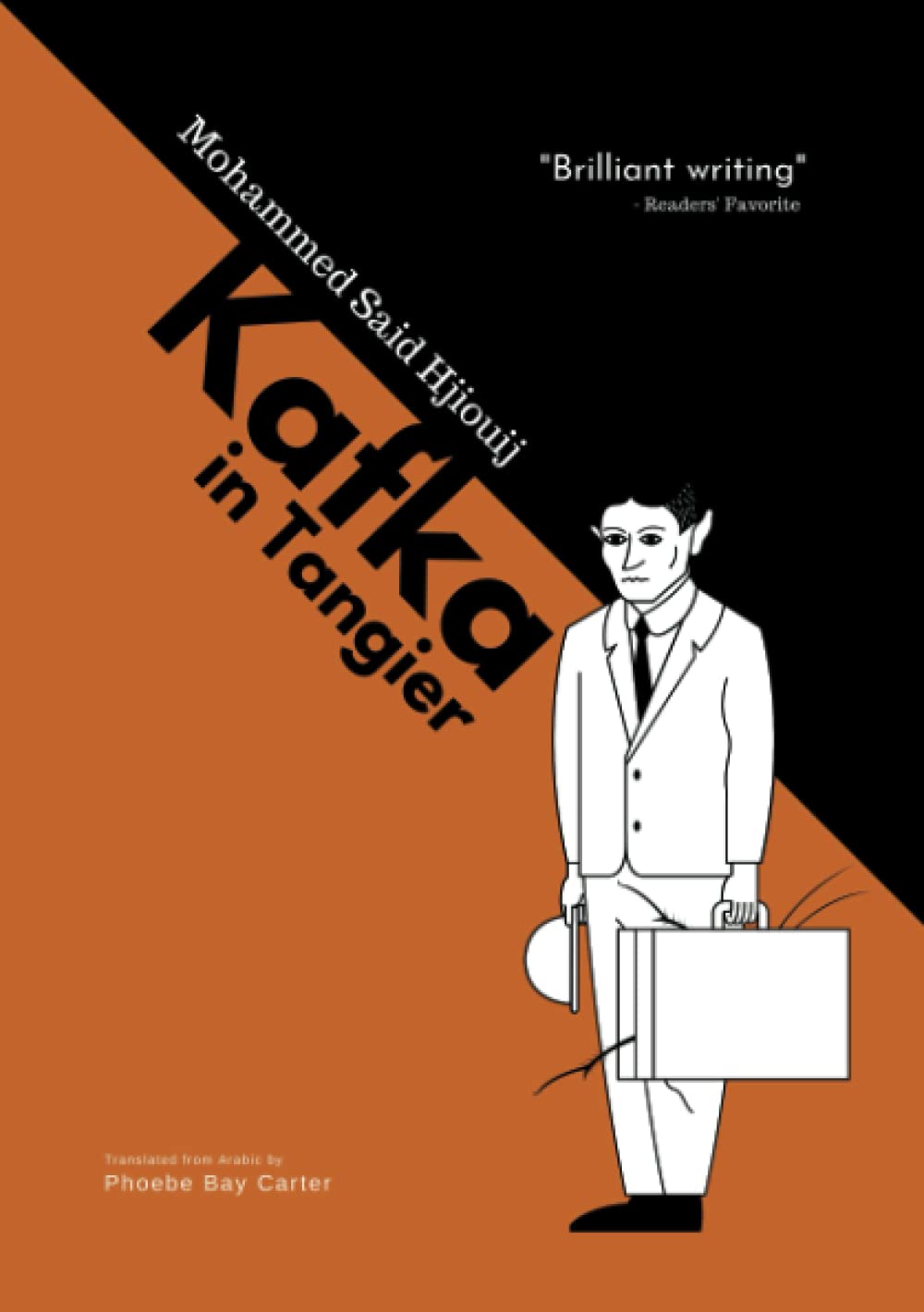
Sons of the People: The Mamluk Trilogy by Reem Bassiouney, translated by Roger Allen (Syracuse University Press)
Bitter Orange Tree by Jokha Alharthi, translated by Marilyn Booth (Scribner, Simon & Schuster)
Kafka in Tangier by Mohammed Said Hjiouij, translated by Phoebe Bay Carter (Agora Publishing)
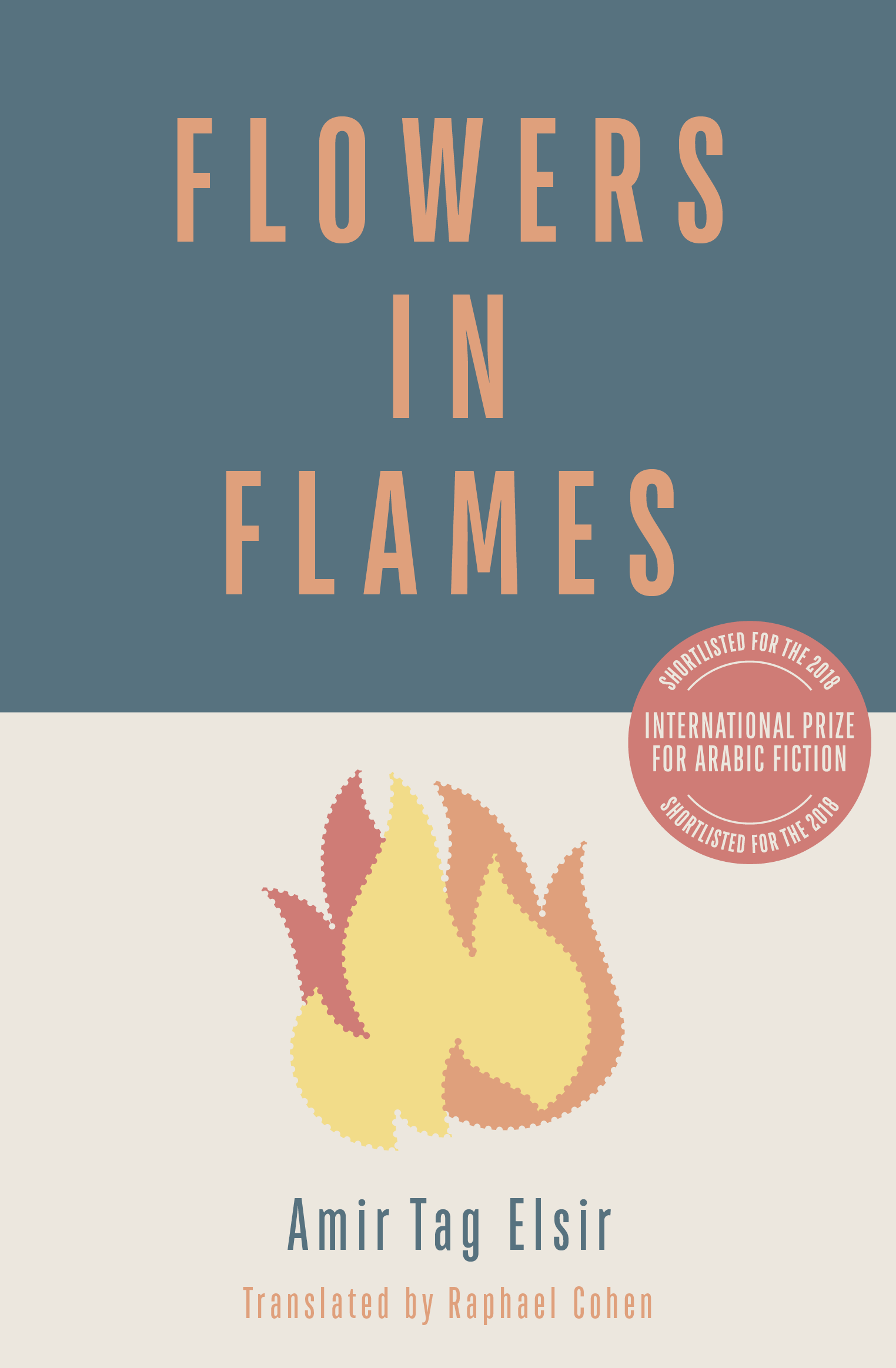
 .
. 
Flowers in Flames by Amir Tag Elsir, translated by Raphael Cohen (Darf Publishers)
The Turban and the Hat by Sonallah Ibrahim, translated by Bruce Fudge (Seagull Books)
Firefly by Jabbour Douaihy, translated by Paula Haydar and Nadine Sinno (Seagull Books)



The King of India by Jabbour Douaihy, translated by Paula Haydar (Interlink Books)
What Have you Left Behind? by Bushra al-Maqtari, translated by Sawad Hussain (Fitzcarraldo Editions)
The Dispersal by Inaam Kachachi, translated by Inam Jaber (Interlink Books)
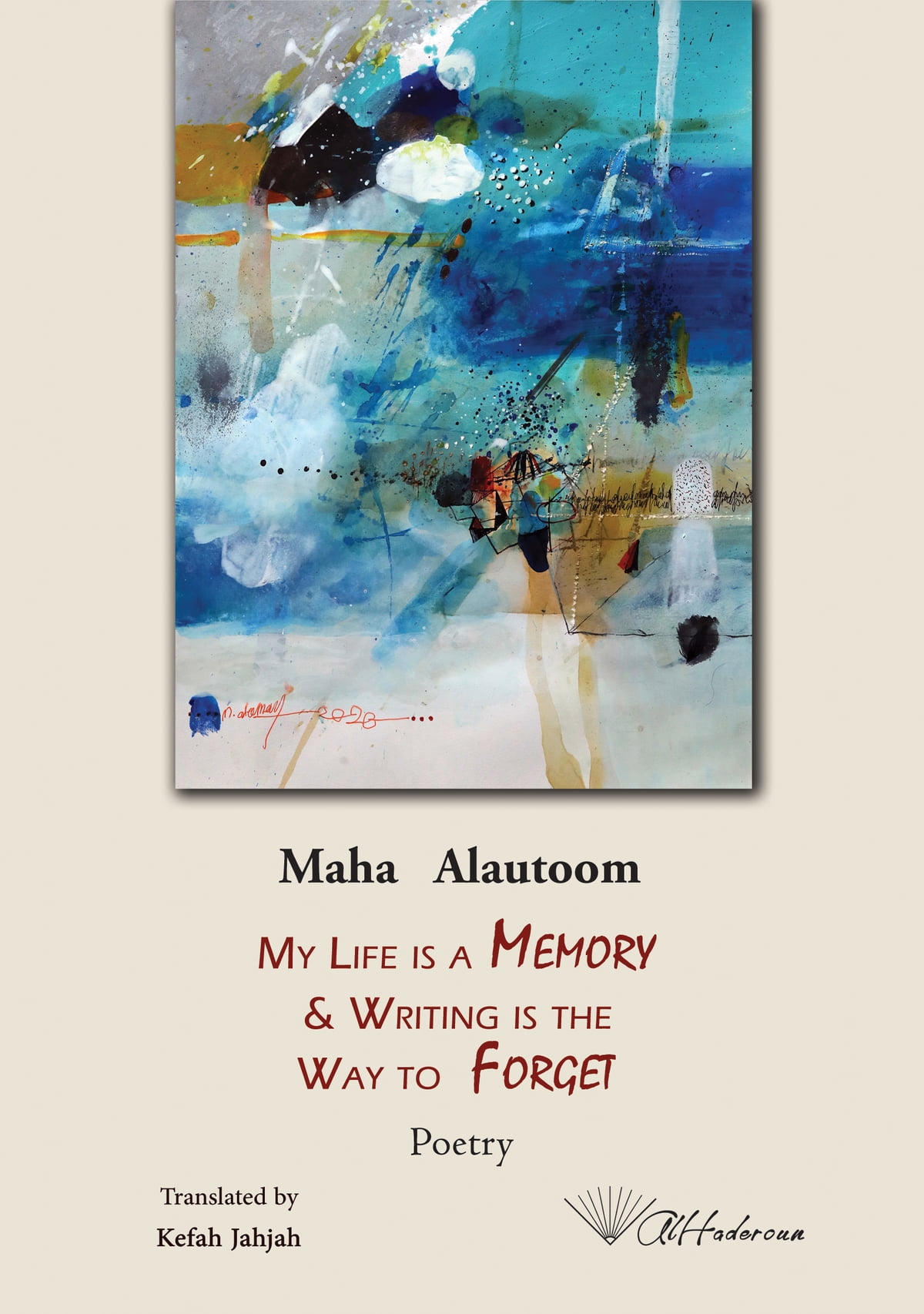
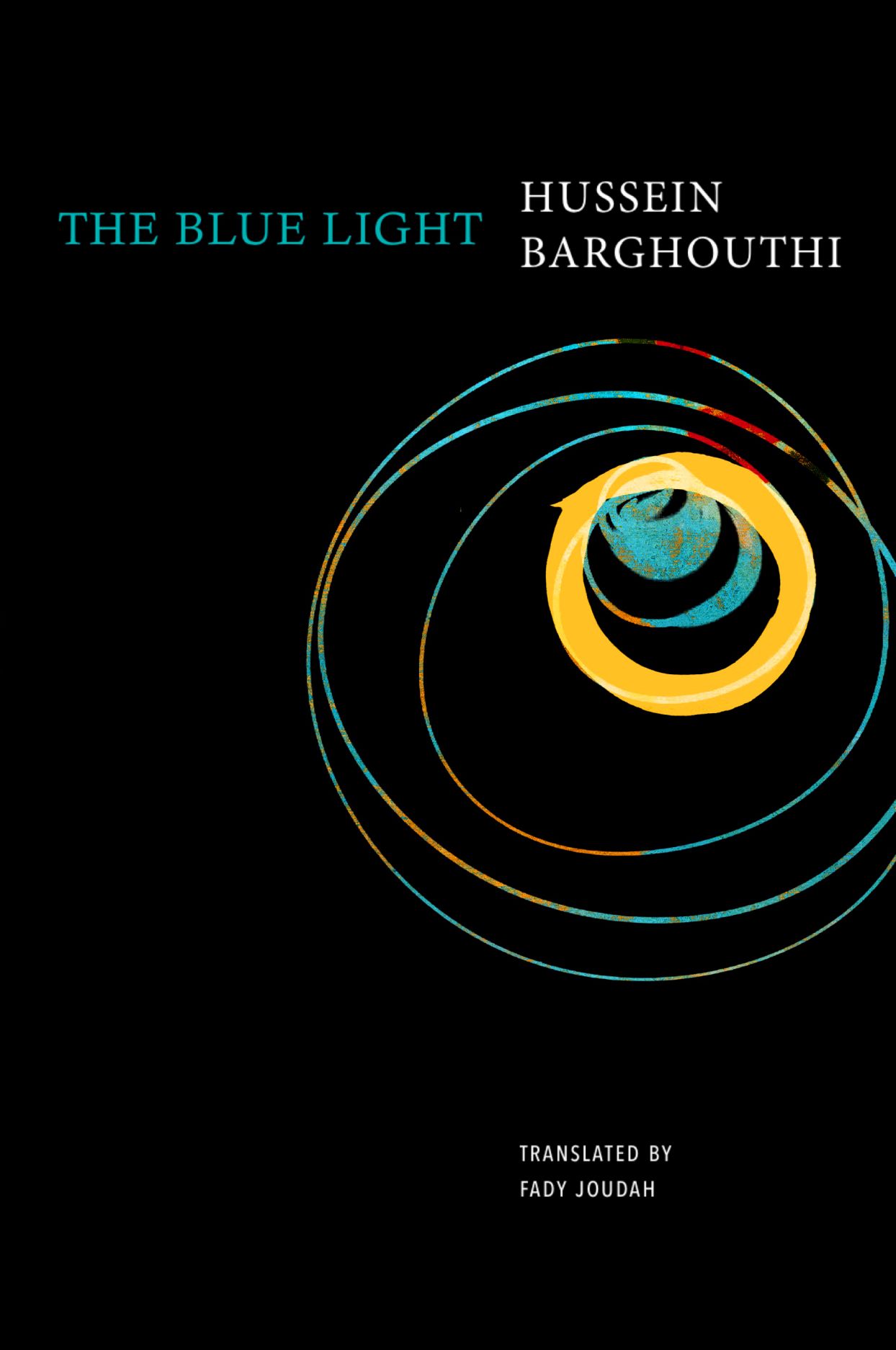

My Life is a Memory and Writing is the Way to Forget by Maha Autoom, translated by Kefah Jahjah (Al Haderoun Publishing House)
The Blue Light by Hussein Barghouthi, translated by Fady Joudah (Seagull Books)
Mister N by Najwa Barakat, translated by Luke Leafgren (And Other Stories)


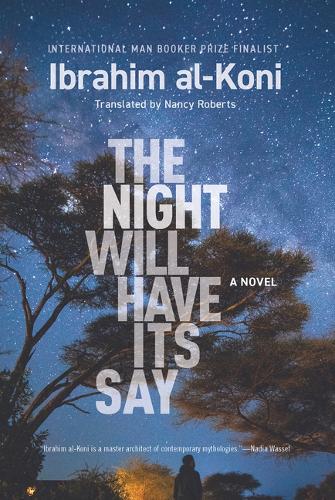
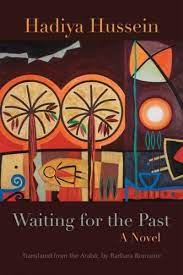
Thunderbird Book One by Sonia Nimr, translated by M Lynx Qualey (University of Texas Press)
Thunderbird Book Two by Sonia Nimr, translated by M Lynx Qualey (University of Texas Press)
The Night Will Have Its Say by Ibrahim Al-Koni, translated by Nancy Roberts (Hoopoe an Imprint of AUC Press)
Waiting for the Past by Hadiya Hussein, translated by Barbara Romaine (Syracuse University Press)
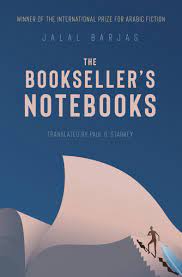
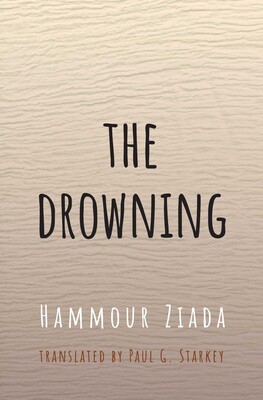
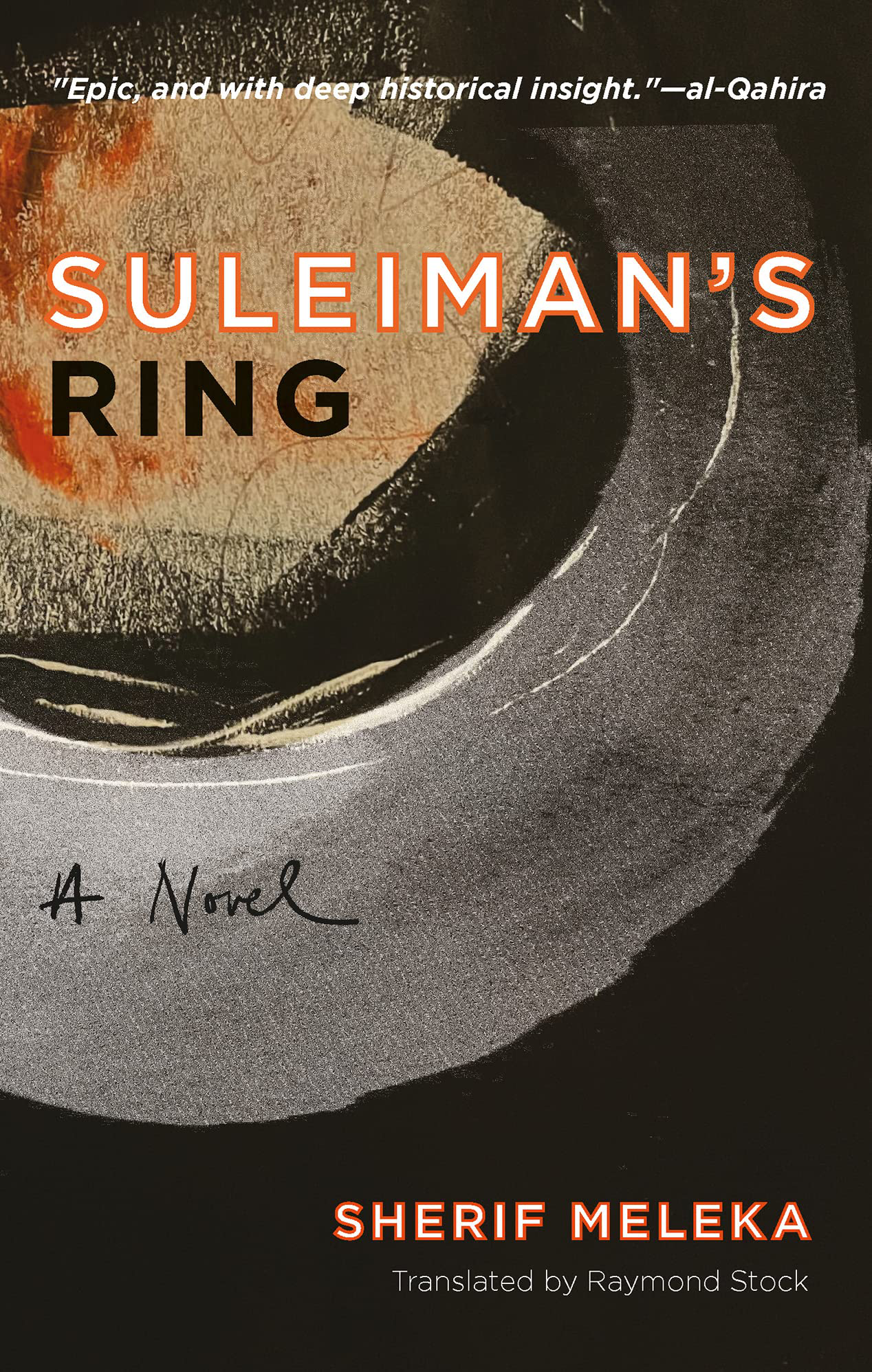
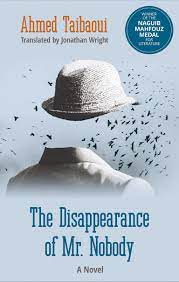
The Bookseller’s Notebooks by Jalal Barjas, translated by Paul G. Starkey (Interlink Books)
The Drowning by Hammour Ziada, translated by Paul G. Starkey (Interlink Books)
Suleiman’s Ring by Sherif Meleka, translated by Raymond Stock (Hoopoe an Imprint of AUC Press)
The Disappearance of Mr. Nobody by Ahmed Taibaoui, translated by Jonathan Wright (Hoopoe an Imprint of AUC Press)
* * *
The Prize is administered by the UK’s Society of Authors,
alongside the other UK literary translation prizes.

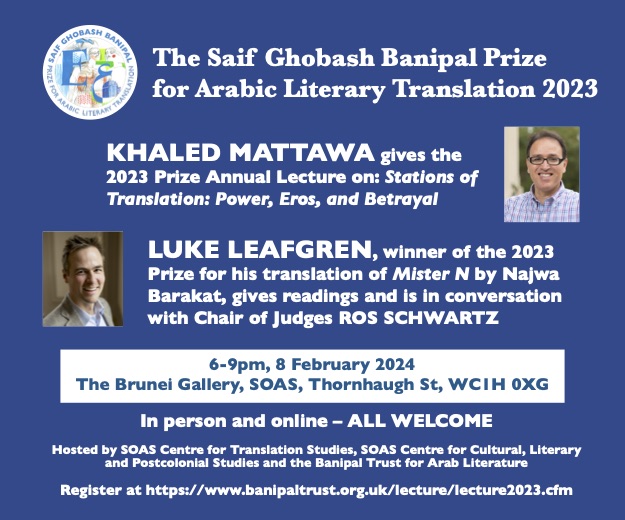
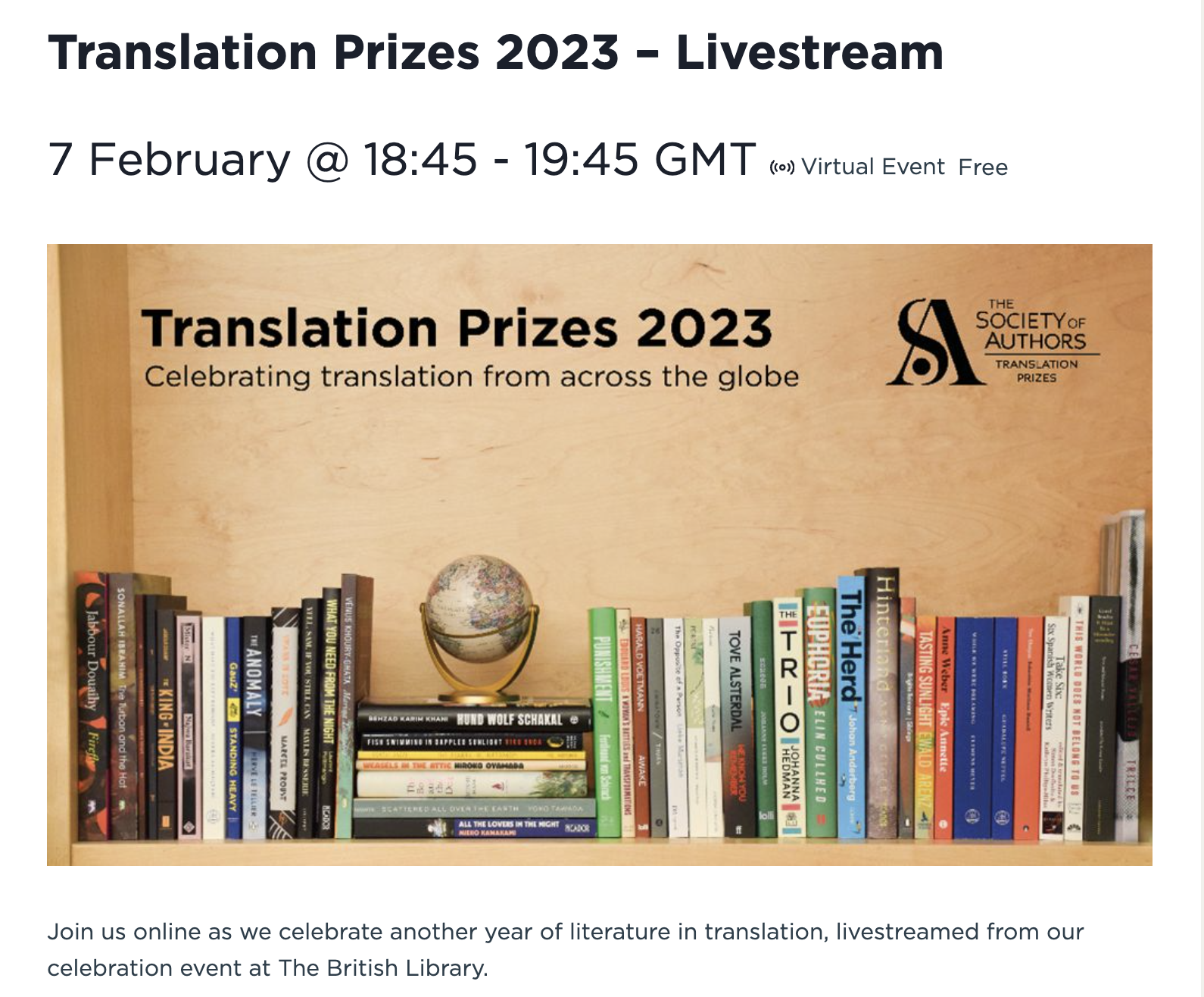

.jpg)
